METSOLA, WOMEN POWER FINALLY BACK AT THE E.P.
WOMEN CHAIR THE EUPARL EVERY 20 YEARS.
KNOW THE 7 WOMEN WHO ARE NOW VICE PRESIDENT
Two out of the three main European Union institutions are ruled by women now! On January 18th, Roberta Metsola was elected as President of the European Parliament until 2024. Metsola is a MEP from Malta since 2013, and she belongs to the European People’s Party (EPP). This nomination makes her as the third woman in history to occupy this position, after Simone Veil (1979-1982) and Nicole Fontaine (1999-2002), and the youngest President of the European Parliament ever (43 years young).In the first speech addressed to the house, Metsola highlighted the huge responsibility to honor David Sassoli’s legacy, to fight for a stronger Europe in “the shared values of democracy, justice, solidarity, equality, Rule of Law, and Fundamental Rights”. Plus, Metsola’s speech was highly appreciated by her Pro-European Union feeling and her willing to make people believe in the European project. “We must fight back against the anti-EU narrative that takes hold so easily and so quickly.”, said Metsola as she kept addressing the attention to the corrosive effect of disinformation within the European society.
Metsola won the election in the first round of balloting, supported by the three main European political groups: the European People’s Party, the Socialist & Democrats, and the liberals Renew Europe....

200 YEARS OF LIBERIA
LAND OF

Monrovia, Liberia
The Bicentennial Steering Committee has launched Liberia’s 200-year anniversary commemoration as a country and announced the theme and slogan of the Bicentennial event. The event is being celebrated throughout 2022 from January 7 to December

10, 2022, with the official opening ceremony taking place on February 14, 2022.
Liberia was founded in 1822 by free people of African descent from the United States of America. According to the Steering Committee, the theme is...
SPAIN, SPECIAL EDITION, FEBRUARY 2022 SPECIAL EDITION ● WWW.EUROPEANTIMES.NEWS ● 16 PAGES ● FREE “MISSION OF MUSIC IS TO UNITE THE WHOLE WORLD” CULTURE PAGE 15 SOCIALISTS WIN 2022 PORTUGAL ELECTIONS POLITICS, PAGE 7 THE EU AND THE UNSPOKEN HUMAN RIGHTS PROBLEM EUROPE, PAGE 4 HARVARD ANSWERS: HOW TO BOOST YOUR IMMUNE SYSTEM WELLBEING, PAGE 6
[GO TO PAGE 4]
[GO TO PAGE 8&9]
THE
RETURN
By European Parliament from EU - Roberta Metsola elected new President of the European Parliament, CC BY 2.0 WikiCommons
A new bold Europe - africa partnership is needed The European opportunity to give back to Africa See page 3
CHIEF EDITOR
Dr. Petar Gramatikov
Contributing Team:
Juan Sánchez Gil
Robert Johnson
Gaston de Persigny
João Ruy Faustino
Charlie W. Grease
© 2022 The European Times News. F-MV-CS. All rights reserved
The European Times is a trademark registered in Spain.
MADRID: Calle Puerta de abajo 16 Alpedrete 28430 Madrid // +34.91-290-14-55 contact@europeantimes.news
The European Times is an online newspaper with a Spanish view on globlal and European matters. On certain occasions we may do special paper editions.
We accept external contributions specially from members of civil society, that otherwise are not given a space.
The European Times NEWS aims to cover news that matter to increase the awareness of citizens all around geographical Europe. Here you find the facts that many don´t dare to publish. The opinions that many try to hide. If you have news that you want to be known, this is a place. We have a strict policy against fake news.
DISCLAIMER OPINIONS: The opinions of the authors or reproduced in the articles are the ones of those stating them and it is their own responsibility. Should you find any incorrections you can always contact the newsdesk to seek a correction or right of replay.
Images belong to their author, owners or licencees.
CONTENT OF THE EUROPEAN TIMES
SPECIAL EDITION FEBRUARY 2022
Socialists win 2022 Portugal elections. Page 7
• Metsola, women power finally back at the E.P. FrontPage & 5
• Is forced organ harvesting a problem for Europeans to tackle? Page 2
A new bold Europe-Africa partnership is needed Page 3
• The EU and the unspoken human rights problem. Page 4
• The EU and the accession to the Eu ropean Convention on Human Rights. Page 4
• The 8 women leading the E.P. Page 5 (coming from FrontPage)
Switzerland - Domestic violence on the rise. Page 6
• Mental health toll of cannabis soared after Scots went soft. Page 6
• Harvard Answers: How can you boost your immune system? Page 6
• Liberia Announces: The Land of Re turn. Pages 8&9
• Where I don’t think, I am thought. Page 10
USA Russia: how to break the dead lock? Page 12
• Conquering peace: from Enlighten ment to the European Union. Page 13
• Is confesion proteted by Fundamental Rights? Page 14
• Global interfaith University is launch on interfaith harmony week. Page 14
Svetlana Kasyan [FRatelli Tutti]: The main mission of Music is tu unite the world. Page 15
• Tensions between sister Orthodox churches - Patriarchate of Alexandria and the Moscow Patriarchate. Page 15
IS FORCED ORGAN HARVESTING A PROBLEM FOR EUROPEANS TO TACKLE?
5 NGOS LAUNCHED THE UNIVERSAL DECLARATION ON COMBATING AND PREVENTING FORCED ORGAN HARVESTING
There seems to be no question, that the availability of certain organs may be life saving, specially in regions such as Europe and North America.
But what happens if that organ would come from forced harvesting as it happens, according to more and more NGOs, in countries like China?
Is Europe prepared to force any “guilty” country to stop?
During last year’s UN General Assembly in September, “World Summit on Combating and Preventing Forced Organ Harvesting,” (co-hosted by 5 NGOs from the US, Europe, and Asia and including a series of six online webinars), was held from Sept. 17 to 26, and brought together 38 experts from 19 countries around the globe. According to the statistics compiled by the event organizers, the World Summit has garnered several hundred thousand views.
At the end of the World Summit, the organizers launched the Universal Declaration on Combating and Preventing Forced Organ Harvesting, also referred to as UDCPFOH, calling on the entire human race to support the concerted endeavor to cease the atrocity of forced organ harvesting committed by the Chinese Communist Party (CCP).
The UDCPFOH is jointly launched by five initiating NGOs: “Doctors Against Forced Organ Harvesting (DAFOH)” from the United States, “CAP Freedom of Conscience” from Europe, “Transplant Tourism Research Association (TTRA)” from Japan, “Korea Association for Ethical Organ Transplants (KAEOT)” from South Korea, and “Taiwan Association for International Care of Organ Transplants (TAICOT)” from Taiwan.
The initiating organizations assert that the UDCPFOH is
the most solemn declarative instrument, striving to ensure that, as a collective people of the 21st century, we will resolve to cease the most diabolical atrocity of forced organ harvesting by the CCP
The UDCPFOH builds on the foundation of inalienable rights which cannot be deprived by any person or regime and lays bare the core principles of the most fundamental universal values, including the inviolability of human dignity and the protection of human life, body, and freedom. The UDCPFOH also proposes measures to combat and prevent the CCP’s forced organ harvesting from gravely violating the value of human existence.
Find more about the Universal Declaration on Combating and Preventing Forced Organ Harvesting
2
OUR TEAM AND AIMS
www.universaldeclarationcpfoh.net
THE EUROPEAN TIMES • FEBRUARY 2022
AU-EU SUMMIT
A NEW BOLD EUROPE - AFRICA PARTNERSHIP IS NEEDED
The European opportunity to give back to Africa
By Petar Gramatikov Chief Editor
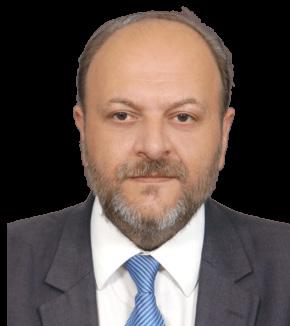
On the 17th and 18th of February, leaders of the European (EU) and the African (AU) Unions will meet for another summit to discuss the future of the two continents. This is the sixth European Union-African Union Summit, taking place in Brussels. The main goal is to strengthen the ties between both sides to build a common future as equal partners. But in contrast to other agreements, this “alliance” needs to have more synergies than the others on different levels.
There is no doubt about the vast importance of this partnership to Africa. But unfortunately, according to the Human Development Index, African countries are at the bottom of this development and humanity ranking amongst all countries globally. This means there is much work to bring good conditions to all African people, especially in education, health, or economic development.
A more effective partnership
On the other hand, a closer and more effective partnership with Africa would benefit Europe. Africa continues to be the continent with the most economic potential globally, given the abundance of natural resources. Plus, a tighter partnership could mitigate the migration crisis that absorbed Southern Europe in the last decade, which keeps killing a considerable number of people willing to risk their lives for a better life for themselves and their children. It is essential to highlight that Africa is one of the primary roots of migration to Europe.
According to the European Commission official data, in 2021, there was a 22% increase of deaths at sea, with 2,598 persons reported dead or missing in JanuaryNovember 2021 on the three main routes (Eastern Mediterranean, Central Mediterranean and Western Mediterranean Routes), compared to 2,128 in the same period of 2020.
According to the European Council agenda, this Summit will be the chance to renew the partnership and target the main political priorities to build greater prosperity for all. The focus of this meeting will be the launch of an ambitious AfricaEurope Investment Package to deal with global challenges such as climate change and health crises.
Considering these two main goals, we can conclude that the EU will try to influence Africa to adopt responsible and prosperous policies, such as the green transition and digital transition, job creation, and most importantly, investing in Human Development.
Education and Freedoms
Regarding Human Development, two main areas need urgent development: Health and Education. This package would be beneficial to create the basis to implement the right policies that would allow a more significant change in the African society supported in Human Rights, including Freedom of Expression and Freedom of Religion or Belief. For example, this Investment Package would improve Health Security and prepare the right conditions to open access to Healthcare to all Africans. Moreover, education is the only way to boost the economic development of one country. Hence, this investment could be helpful to invest in inclusive education and teaching formation to all African children, especially women, that would include education on the Universal Declaration on Human Rights values. Besides, a broader exchange program of students similar to Erasmus+ would be appreciated between both sides.

A safer Africa
Furthermore, we cannot think in Africa without thinking of possible solutions to make the continent a safer place for all Africans. Africa continues to be one continent with several conflicts that harm the daily lives of millions of people and often with the connivance of European powers. Hence, the Summit could be an opportunity to agree on
cooperation solutions to fight against the continent’s instability and prevent people from inciting radicalization and joining terrorist groups. The EU can undoubtedly help the African countries defend themselves and provide them with adequate training and equipment. However, they can’t forget to forge strong knowledge and values on fundamental rights on those who will be the leaders of tomorrow: immediately needed defence resources, without investment in ensuring education and knowledge of fundamental rights, will only ensure continued armed conflicts.
Health and nutrition
And last but not least, there is room to improve the aid to African countries to control pandemics through a heightened control and availability of proper nonadulterated nutrition. In addition, helps is needed to create more robust immune systems in a continent where hunger and malnutrition are probably one of the most significant sources of premature deaths.
This meeting could be an opportunity to raise the humanitarian aid of the EU to Africa by helping create infrastructures built by locals. This will enable them to be selfsufficient and a resource for the EU and the world, to get raw and manufactured materials of quality in a fair fashion that contributes to the African population’s economies and wellbeing of the African people.
Ursula von der Leyen, on her first
speech as President of the European Commission, remembered the mission that Europe has at hands with Africa. A comprehensive strategy, a close neighbour and a natural partner were the words used by the President to describe a partnership with Africa. At the half of her speech, “Europe must support Africa in designing and implementing its own solutions to challenges such as instability, crossborder terrorism and organized crime.”
In sum, the EU should embrace this challenge very specially. Human Development needs to be the heart of future strategy between Europe and Africa. This alliance could be Africa’s driving force to change society towards honourable norms and values and preserve common goals together. To accompany the coalition, we need to ensure that these ideas could be implemented according to the values founded the Universal Human Rights: education, security and prosperity of our citizens, the protection of human rights for all, gender equality and women’s empowerment in all spheres of life, respect for democratic principles, good governance and the rule of law.
Faster and deeper integration
This could be the beginning of a new “Marshall Plan” that could allow a faster and deeper African integration like it succeeded in the European continent. May this European fairytale inspire a fresh restart for Africa and all Africans. ■
3
Photo by Martin Bekerman on Unsplash
EUROPEANTIMES.NEWS • FEBRUARY 2022
EUROPE
THE EU AND THE UNSPOKEN HUMAN RIGHTS PROBLEM
NEWSDESK. The EU has a legal obligation of acceding to the European Convention of Human Rights (ECHR) and has since 2019 resumed the accession process to the Convention system of the Council of Europe. The EU, however, has already ratified the UN’s Convention on the Rights of Persons with Disabilities (CRPD) and thus has a legal problem with the ECHR’s Article 5 that conflicts with the CRPD, if the EU does not note any reservations.
There is a widespread agreement that it is desirable and necessary that the EU step up its human rights responsibility, including acceding to the ECHR. However, a number of issues are still to be addressed, possibly not even considered or realized yet. One of these is on the rights of persons with disabilities and mental health problems in case the EU accede to the ECHR.
Written in the years after the Second World War
The ECHR was conceived and written in the years after the Second World War to protect individuals against the abuses of their states, create confidence between populations and governments, and allow dialogue between states.
Europe and the world, in general, have developed considerably since 1950. Both technologically and in terms of viewpoints of the person and societal constructs. With such changes over the past seven decades, gaps in past realities and a lack of foresight in formulating certain article points in the ECHR pose challenges in perceiving and protecting human rights in today’s world.
The ECHR in this context includes text that limits the fundamental rights of persons with psychosocial disabilities. The ECHR drafted in 1949 and 1950 authorize the deprivation of “persons of unsound mind” indefinitely for no other reason than that these persons have a psychosocial disability. The text was formulated by representatives of the United Kingdom, Denmark and Sweden, led by the British, to authorize Eugenics caused legislation and practices that were in place in these countries at the time of the formulation of the Convention.
It was a widespread acceptance of Eugenics as an integral part of the social policy for population control that lay at the root of the efforts of the representatives of the United Kingdom, Denmark and Sweden to

include an exemption clause, that would authorize the government’s policy to segregate and lock up “persons of unsound mind, alcoholic or drug addicts and vagrants”.
harmful practices and stigma relating to persons with disabilities.
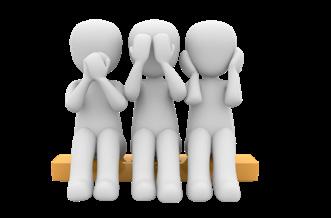
The human rights approach to disability adopted by the United Nations is acknowledging persons with disabilities as subjects of rights and the State and others as having responsibilities to respect these persons.
Through this historic paradigm shift, the CRPD forges new ground and requires new thinking. Its implementation demands innovative solutions and leaving the past viewpoints behind.
Ms Catalina Devandas-Aguilar, UN Special Rapporteur on the rights of persons with disabilities
The Council of Europe in the last years has come into a serious dilemma between two of its own conventions, the ECHR and the Convention on Biomedicine and Human Rights, that contain texts based on outdated, discriminatory policies from the first part of the 1900s and the modern human rights promoted by the United Nations.
The Council of Europe has maintained the concerned convention text, and in reality, it is thus promoting viewpoints that practically perpetuate a Eugenics ghost in Europe.
Criticism of drafted text
Much of the criticism of a drafted possible new legal instrument currently being considered by the Council of Europe, which is extending the ECHR’s article 5, refer to the paradigm shift in viewpoint and the need for its implementation that took place with the adoption, in 2006, of the International Human Rights treaty: the Convention on the Rights of Persons with Disabilities (CRPD).
The CRPD celebrates human diversity and human dignity. Its main message is that persons with disabilities are entitled to the full spectrum of human rights and fundamental freedoms without discrimination. The Convention promotes the full participation of persons with disabilities in all spheres of life. It challenges customs and behaviour based on stereotypes, prejudices,
The UN Committee on the Rights of Persons with Disabilities, as part of a public hearing in 2015, issued an unequivocal statement to the Council of Europe that “involuntary placement or institutionalization of all persons with disabilities, and particularly of persons with intellectual or psychosocial disabilities, including persons with ‘mental disorders’, is outlawed in international law by virtue of article 14 of the Convention [CRPD], and constitutes arbitrary and
The EU and the accession to the European Convention on Human Rights
The importance of aligning the EU with human rights has been a topic of discussion of varied intensity for a long time. The need for it is obvious today but has been a subject of attention since the late 1970s, even before the formal creation of the European Union as we know it today. Formal and informal talks on how to achieve the accession of the EU to the European Convention on Human Rights (ECHR) did take place both within the predecessor entity to the EU and the Council of Europe already in the late 1970s.
The issue was brought to the forefront once again with the adoption of the European Union Charter of Fundamental Rights (7 December 2000).
With the entry into force of the Lisbon Treaty (1 December 2009) and of Protocol 14 to the ECHR (1 June 2010), the accession has no longer been merely a wish; it has become a legal obligation under Article 6(2).
The purpose of the EU’s accession to the ECHR is to contribute to creating a single European legal space, achieving a coherent framework of human rights protection throughout Europe.
The accession, however, is not as simple as it has been for the existing 47 European states who have acceded to the ECHR system so far. The EU is
discriminatory deprivation of liberty of persons with disabilities as it is carried out on the basis of actual or perceived impairment.”
The UN Committee further pointed out to the Council of Europe that, States parties must “abolish policies, legislative and administrative provisions that allow or perpetrate forced treatment, as it is an ongoing violation found in mental health laws across the globe, despite empirical evidence indicating its lack of effectiveness and the views of people using mental health systems who have experienced deep pain and trauma as a result of forced treatment.” ■
a non-state entity with a specific and complex legal system, unlike that of a national state. For the EU to acceed to the ECHR, some adjustments to the ECHR system are necessary.
The work to identify and solve the legal and technical issues that would have to be addressed by the Council of Europe, in the event of the envisioned accession by the EU to the ECHR, as well as of the means to avoid any contradiction between the legal system of the EU and that of the ECHR, was started in 2001.
Work and negotiations resumed in 2019, at the request of the EU Commission, after five years of a halt of the process. Since then, seven meetings have been held by the Council of Europe ad hoc negotiation group composed of representatives of the 47 Member States of the Council of Europe and representatives of the European Union (“47+1”). The last meeting was held from 7-10 December 2021.
When the EU will have acceded to the ECHR, it will be integrated into the fundamental rights protection system of the ECHR. In addition to the internal protection of these rights by the EU law and the Court of Justice, the EU will be bound to respect the ECHR and will be placed under the external control of the European Court of Human Rights.
The accession will also enhance the credibility of the EU in the eyes of third countries, which the EU regularly calls upon, in its bilateral relations, to respect the ECHR ■
“it must be acknowledged that the European Convention on Human Rights (ECHR) is an instrument which dates from 1950 and the text of the ECHR reflects a neglect and outdated approach concerning the rights of persons with disabilities.”
4
THE EUROPEAN TIMES • FEBRUARY 2022
THE 8 WOMEN LEADING THE E.P.
[STARTS ON PAGE 1] In total, Metsola received 458 out of 690 casted votes, against two other opponents (also women): Alice Kuhnke (101 votes) and Sira Rego (57 votes), for the Green Party and GUE/NGL, respectively.
Women in power with the support of the EU
Throughout the History, we could clearly state that Men occupied the main functions of the institutions or countries. Even with the fight for Women’s rights in the beginning of the 20th century, women in top positions were an exception until the previous decade. Gender equality is a Human Right, and therefore, it needs to be protected and well used by the European institutions. It is important to highlight that the EU is an important ally of women in order to fight for gender equality. The EU has adopted several legislations to support gender equality in the European Institutions and in the Member States.
Everyday, the European legislation positively affects the daily life of Women in matters of labour conditions, social policies, or security.
To address the lack of women in top-position levels, the EU felt the need to intervene in order to create fair rules that allowed a visible parity between genders. Hence, in a report adopted in January 2019, Parliament called on European political parties to ensure both women and men are put forward for the bodies governing the European Parliament in the ninth parliamentary term. The result was the nomination of 41% of women for MEPs – the highest percentage of woman elected for MEP in the European Parliament History!
Still, Women are under-represented in the European Institutions. We could see some advances with the first-time nomination of Women for European Commission Presidency (Ursula von der Leyen) and to rule the European Central Bank (Christine Lagarde), however there is more room to go in order to achieve the full gender equality in the European institutions.
In sum, the nomination of Roberta Metsola is a combination of hard-work, determination, and good influence of European legislation to bring brilliant women on stage.
Who are the new EP’s women vicepresidents?
Taking into account the gender equality approach by the European institutions, the representation of women in high-level posts in the European Parliament is also increasing. For example, in the first half of the current parliamentary term, eight of the 14 vice-presidents were women (representing 57% of the total of vice-presidents).
For the second half of the current parliamentary term (which has begun with the election of Roberta Mertsola as President of the EP), it was maintained the numbers of Women VicePresidents of the European Parliament, which means eight of the 14 elected vice-presidents are women.
With regard to political groups, half of the elected Women Vice-Presidents are from the Socialists & Democracts Group, two women from the liberals Renew Europe, one woman from the European People’s Party, and one woman from the Greens. Below, you could see a short presentation from the new women Vice-Presidents of the European Parliament
Pina Picierno (S&D)
She is an Italian Politician, serves as Member of the European Parliament since 2014 and it was the second most voted Vice-President of the ballot. She works on the Committee on Budgets and on the Committee on Women’s Rights and Gender Equality of the European Parliament.
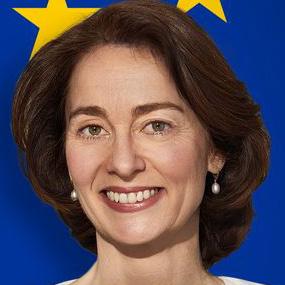
Ewa Kopascz (EPP)
Ewa is a Polish politician, who serves as Member and Vice-President of the European Parliament since 2019. She was reelected for a second term as vice-president 18th in January 2022. She was Marshal of the Sejm (the peaker of the lower House of Poland) and Prime Minister of Poland.
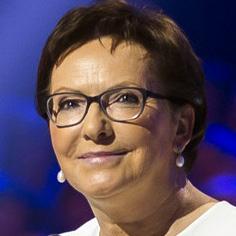
Eva Kaili (S&D)
Eva is a Greek Politician and TV News presenter. She is in the European Parliament since 2014 as MEP. She embraces the vice-presidency of the European Parliament for the first time, and being the first greek woman to be in the post since 2014. She has been serving on the Committee
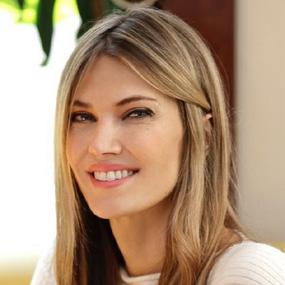

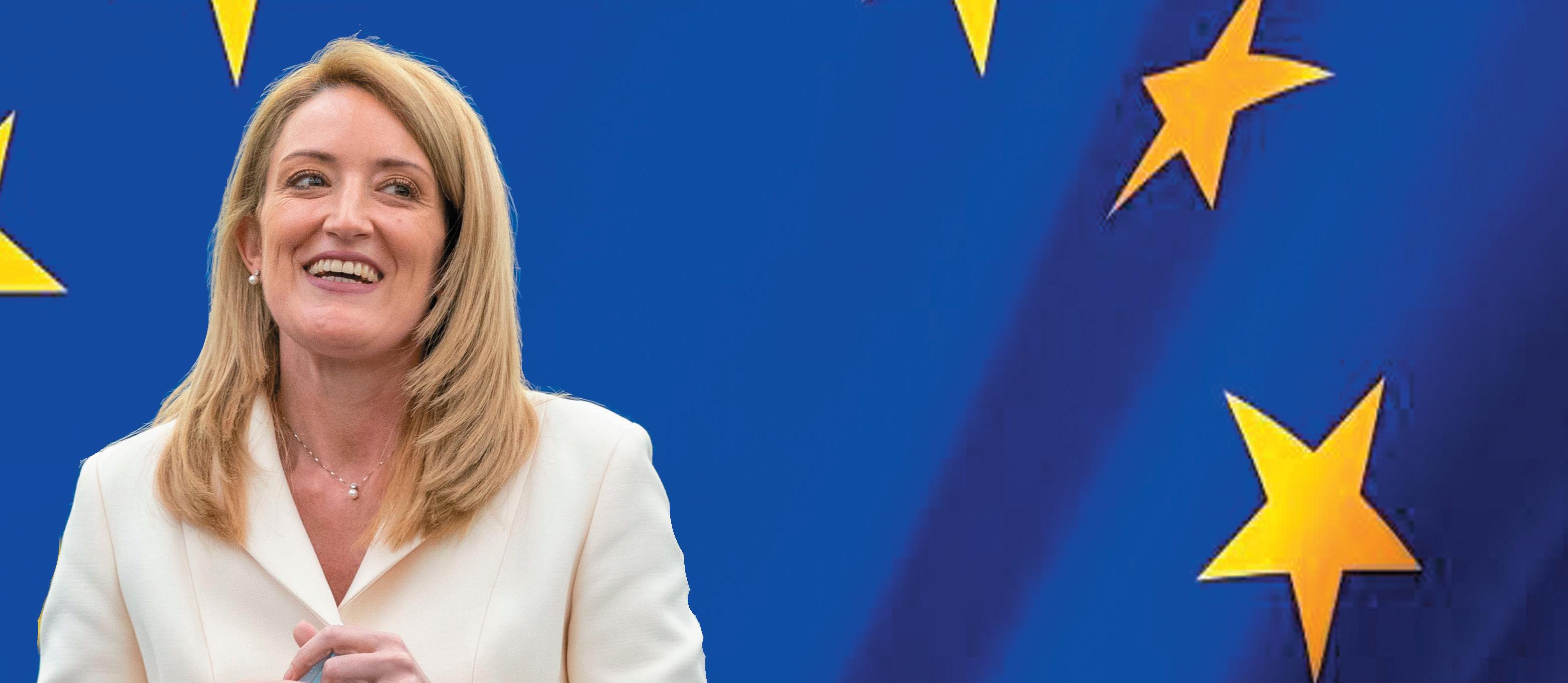
on Industry, Research and Energy (ITRE), the Committee on Economic and Monetary Affairs (ECON), and the Committee on Employment and Social Affairs (EMPL).
Katarina Barley (S&D)
Katarina is a German Lawyer and Politician who has been a Member and Vice-President of the European Parliament since 2019. She works on the Committee on Industry, Research and Energy, the Committee on Economic and Monetary Affairs, and the Committee on Employment and Social Affairs. Plus, she is keeping attention on the developments of the Conference on the Future of Europe. She was reelected for a second term as vice-president 18th in January 2022.
Dita Charanzová (RE)
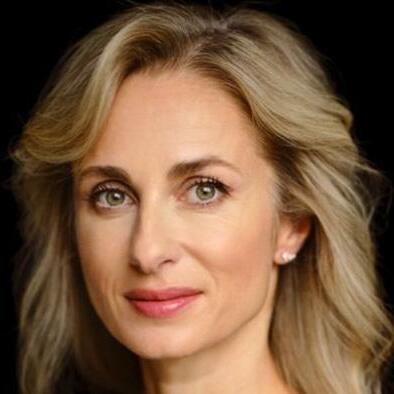
Dita is a Czech politician and diplomat. She is Member of the European Parliament since 2014, and Vice-President of the European Parliament since 2019, being reelected for a second term as vice-president 18th in January 2022. She works in the Committee on the Internal Market and Consumer Protection and in the Committee on International Trade and of the Special Committee on Artificial Intelligence in a Digital Age.
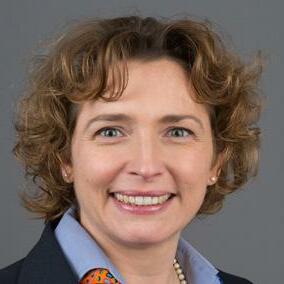
Nicola Beer (RE)
Nicola is a German Lawyer and Politician, who has been serving as Member and Vice-President of the European Parliament since 2019. She joined the Committee on Industry, Research and Energy and she has been an active part following the Conference on the Future of Europe.
Heidi Hautala (Greens)
Heidi is a Finnish Politician and Member of the European Parliament, since 2014. From all the names mentioned above, she is the most experienced women, being on her 5th term as MEP (She was MEP from 1995 to 2003 and 2009 to 2011), and she is on her 3rd consecutive term as Vice-President since 2015. She is a Member of the Committee on International Trade and of the Subcommittee on Human Rights, and in the Committee on Legal Affairs (JURI). The main themes in her work are human rights, openness, global justice and environmentally responsible legislation. ■
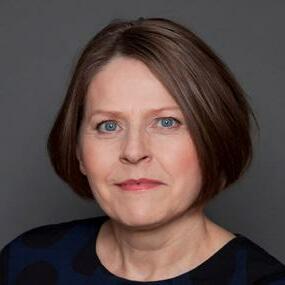
5EUROPE
Image credits: Main photo © European Union 2022 - Source : EP AuthorA.R. Profile photos EP site and social media
EUROPEANTIMES.NEWS • FEBRUARY 2022
WELLBEING
HARVARD ANSWERS: HOW CAN YOU BOOST YOUR IMMUNE SYSTEM?
By Nicola Di Giulio President of the City Council of Lausanne

The beautiful country of Switzerland is known to offer a certain security. But behind the scenes, this image is shattered by serious situation: domestic violence!
In Switzerland, 20,000 cases of domestic violence are recorded every year. One person dies every week as a result of domestic violence. In the canton of Vaud it is about four police interventions per day.
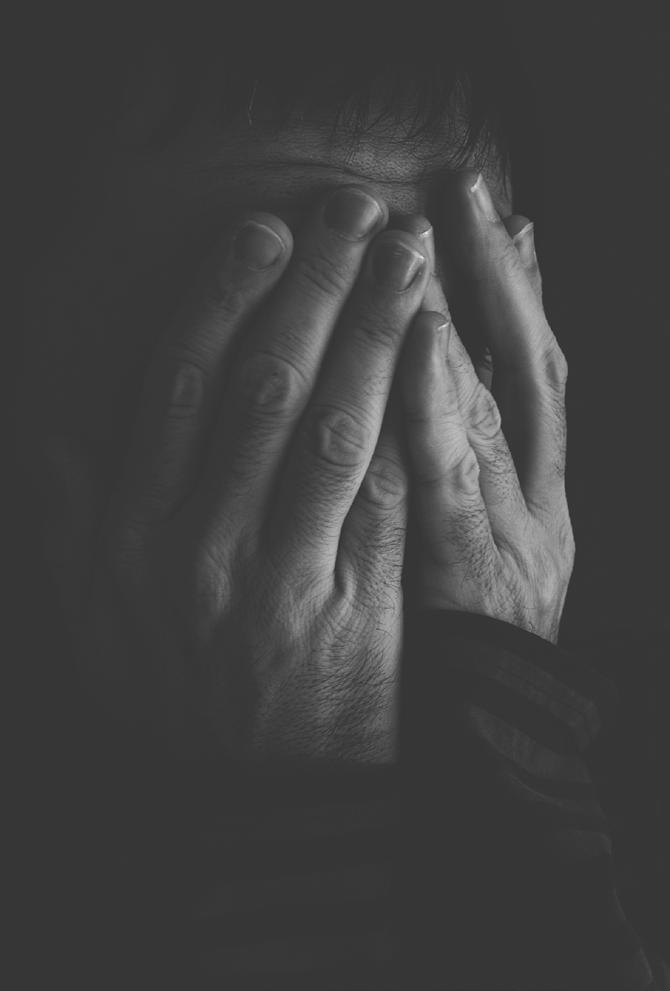

Some time ago, the town of Morges hosted a travelling exhibition “Stronger than violence”.
The aim of the project was to raise awareness among young people about domestic violence.
I salute the associations, individuals and our authorities who are mobilising in the face of this very serious situation!
Even more worrying is the fact that half of all young people in couples in Switzerland experience verbal or psychological violence.
Last December, a prevention
campaign was launched by several cantons
Every effort is being made to remedy this scourge, which sometimes seems uncontrollable!
Without taking away the perpetrator’s responsibility for his or her sometimes irreparable act, we know that alcohol, drugs or medication can lead to violent behaviour.
A question could therefore be asked. For each case reported shouldn’t there be an in-depth analysis of the presence of these substances at the time of the
incident and verify how long they were consumed before the irreparable act?
An analysis of all these situations would perhaps allow us to understand this phenomenon even better and act accordingly.
The debate is on!
In the meantime, let us remember Article 5: “No one shall be subjected to torture or to cruel, inhuman or degrading treatment or punishment”.
It is time to honour the promise of the Universal Declaration of Human Rights. ■
In times of pandemics, in addition to following preventive protocols, and of course, having good hygiene and nutrition is vital, and this may include having your body free from the influence of drugs. According to studies from Harvard University, the idea of boosting your immunity may be enticing, but it seems that the ability to do so has proved elusive for several reasons.
“The immune system,” Harvard says, “is precisely that — a system, not a single entity. To function well, it requires balance and harmony. There is still much that researchers don’t know about the intricacies and interconnectedness of the immune response. For now, there are no scientifically proven direct links between lifestyle and enhanced immune function”.
But that doesn’t mean the effects of lifestyle on the immune system aren’t intriguing and shouldn’t be studied. For example, researchers are exploring the impact of diet, exercise, age, and other factors on the immune response in animals and humans. In the meantime, general healthy-living strategies make sense since they likely help immune function and come with other proven health benefits. ■
By Juan Sanchez Gil
According to a report, a record 1,263 new patients in Scotland sought psychiatric treatment last year. The figure relates to those patients treated for disorders medics linked to cannabis. Research has previously shown a strong link between cannabis and mental illness. As first reported by the Daily Mail,
Admissions to psychiatric hospitals among cannabis users have soared 74 per cent since decriminalized the drug in Scotland circa six years ago, figures show.
Admissions rocketed from 1191 in 2015/16 to almost double 2,067 patients last year.
Already several countries have faced a counter-reaction when softening their regulations on cannabis. For example, the Scottish police changed guidance in January 2016, and since then, when someone was found possessing cannabis, instead of facing prosecution, would be issued with a warning.

The organization “RETHINK Mental Health” states on its website
“Regular cannabis use is linked to an increased risk of anxiety and depression. But most research seems to have a focus on the link between psychosis and cannabis. Using cannabis can increase the risk of later developing psychotic illness, including schizophrenia. There is a lot of reliable evidence to show a link between the use of stronger cannabis and psychotic illnesses, including schizophrenia.”
That is why non-pharma influenced experts are warning about the dangers of legalizing even the socalled “controlled cannabis” as it seems to exacerbate mental health problems while opening the door to further dangerous drugs.
■
6
DRUGS, ALCOHOL, MEDICATION SWITZERLAND - DOMESTIC VIOLENCE ON THE RISE ARE DRUGS, ALCOHOL AND UNDUE MEDICATION ONE OF THE CAUSES?
MENTAL HEALTH TOLL OF CANNABIS SOARED AFTER SCOTS WENT SOFT THE EUROPEAN TIMES • FEBRUARY 2022
POLITICS
WIN 2022 PORTUGAL ELECTIONS
Unexpected absolute majority, Costa reelected
that an absolute majority was an “extreme scenario”.
Faustino
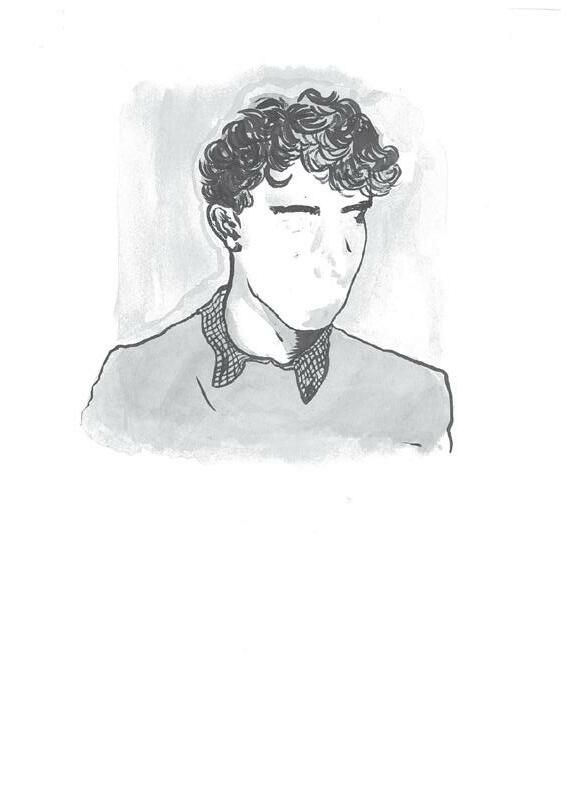
After the government led by António Costa and his Socialist Party fell amid an annual budget vote, Portugal faced a general election on 30 January.
PS, Partido Socialista, in power for six years now, managed to get an absolute majority in the Assembly of the Republic, defeating his major rivals on the left and the right.
Portugal had a political crisis to solve in this election. António Costa wanted to pass a budget; his former leftwing “gerigonça” partners voted the budget down. So the Portuguese President, Marcelo Rebelo de Sousa, dissolved the parliament and called early elections.
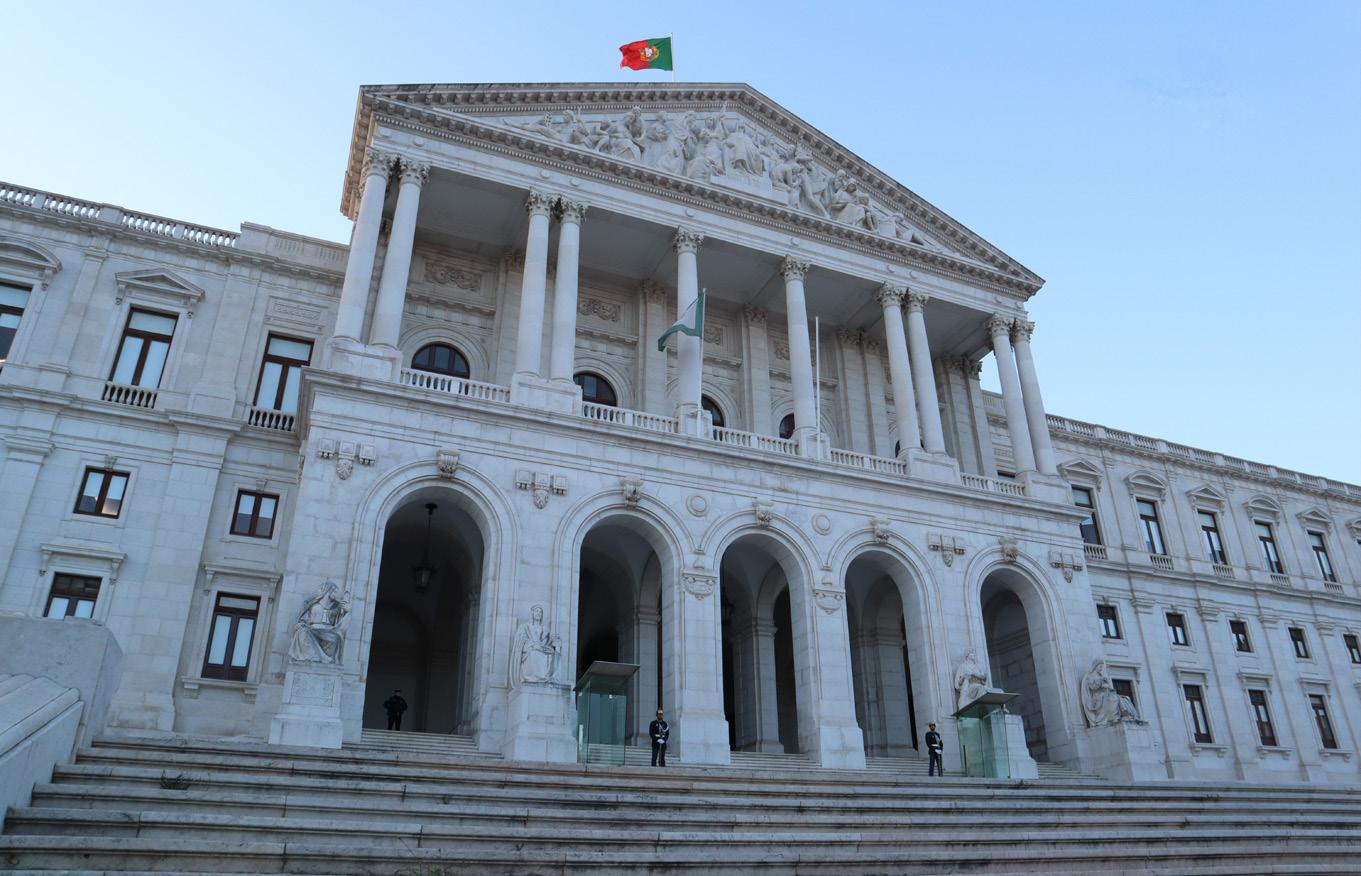
António Costa, the Portuguese Prime Minister and PS Secretary-General asked for an absolute majority in the Portuguese parliament, and he got it. However, all polls and political analysts called it “impossible”, and even Costa himself didn’t seem very confident in the campaign’s last moments. And even on the day of the election, when the results of the exit polls were revealed, showing that a Socialist absolute majority was “possible, but very unlikely”, Costa admitted
However, 41,68% was enough for a majority in the parliament. 117 (One hundred seventeen) deputies were elected, 116 needed for an absolute majority. Never in the history of Portuguese democracy has a parliamentary majority been formed with such a small percentage of the votes – the last, and at the time only, an absolute majority for PS was in 2005 with 45,03% of the votes. PS won all electoral districts except Madeira, a social-democratic bastion, but all other PSD electoral bastions, like Leiria and Viseu, for example, were lost to the socialists. This was also one of the major surprises of the electoral night.
Although not announcing any formal resignation, the leader of PSD (Partido Social-Democrata - SocialDemocratic Party), Rui Rio, stated that with a socialist majority, “I can’t see how I can be of any use” to the party. This result was a big upset for the social democrats. Rui Rio expected to increase not only the PSD vote but also the socialdemocratic parliamentary representation. However, the voter share only had a minimal increase, while the PSD parliamentary group will probably decrease by 1 deputy, going from 79 to 78*. PSD wasn’t even able to
cross the 30% mark.
The populist/nationalist party CHEGA! (ENOUGH!) is now the 3rd political force in Portugal, exceeding expectations regarding the number of deputies elected. The party now has 12 deputies, increasing the parliamentary group by eleven members. In addition, the party managed to have a better result in the north of the country than expected and so consolidated its status as a major political force. However, it is important to note that the party, or movement, did not have its height in terms of votes in this election. In the 2021 Presidential Elections, the party’s candidate and leader André Ventura, managed to get 496.773 votes, and now only had 385.559 votes (7,15%), a drop of more than 100 thousand votes. This indicates that the party hit a kind of “electoral ceiling”, as many political analysts and party members predicted.
Iniciativa Liberal (Liberal Initiative) also had only one deputy and now has 8. The party almost had 5% of the vote (4,98%). This result is within the expectations, although some polls not only pointed to 6% but also predicted the liberals to be the 3rd political force in Portugal. The party leader, however, did not mention any disappointment.
The former members of
“gerigonça” (the name given to the informal alliance between the left-wing political parties in Portugal between 2015 and 2021, PS/BE/PCP) had a terrible electoral night and suffered the consequences of a “bipolarization” in favour of PS. This result can also be interpreted as a punishment for not having effectively justified the fact that they “brought down” the government by not passing the budget.
Bloco de Esquerda (Left Bloc) went from 500.017 votes (9,52% of the vote, 3rd political force) to 240.257 (4,46%), losing more than half of the votes, but more importantly, 14 deputies, with the leftist parliamentary group being reduced to only five members.
The CDU, a coalition led by the PCP, Partido Comunista Português (Portuguese Communist Party), also lost a big share of the vote, going from 6,33% and 12 deputies to 4,39% and 6 deputies.
Although CDS-PP (CDSPeople’s Party) had more votes than PAN and Livre (two ecologist parties that had 1 deputy elected each), the Christian-democratic party failed to elect any deputy. Francisco Rodrigues dos Santos, the centrist party leader, presented his resignation as he is “no longer able to lead the party”.
It is the first time in 47 years of democracy that the party
failed to get parliamentary representation.
António Costa now awaits the request of the Portuguese President to form his “new” government. Some renovation is expected, but there isn’t any reliable information to say what type of renovation it will be. The only thing we can be sure of is that after 6 years of a minority government, António Costa finally has an absolute parliamentary majority that can make his governing decisions easier to pass. Even though Costa promised to search for a “necessary consensus” as it wants to “govern with and for all the Portuguese”. We will see… ■
Results*: PS - 41,68% - 117* PPD/PSD - 29,27% ** - 76* CHEGA! - 7,15% - 12 Iniciativa Liberal - 4,98% - 8 CDU - PCP/PEV - 4,39% - 6 BE - 4,46% - 5 PAN - 1,53% - 1 Livre (Free) - 1,22% - 1 CDS-PP - 1,61% - 0
*There are 4 seats in the Portuguese Assembly of the Republic reserved for the votes outside the Continent and the Autonomous Regions (Açores and Madeira), Europe and Outside of Europe electoral districts. At the time of writing, the votes were not counted, and so the seats weren’t assigned. However, PS and PSD will almost certainly have 2 seats each from those 2 electoral districts.
**In Madeira and Açores, PSD was part of a coalition with CDS-PP and CDS-PP/ PPM, respectively, but all the deputies elected by the coalitions are militants of PSD.
“AN ABSOLUTE MAJORITY IS NOT ABSOLUTE POWER (...).
THE PORTUGUESE SHOWED A RED CARD TO UNGOVERNABILITY”
ANTÓNIO COSTA, PRIME-MINISTER
AND
SECRETARY GENERAL OF PS
7 SOCIALISTS
“WITH A SCENARIO OF AN ABSOLUTE MAJORITY FOR PS IN THE NEXT 4 YEARS, I CAN’T SEE HOW I CAN BE OF ANY USE TO MY PARTY…”
RUI RIO, LEADER OF PSD
“ANTÓNIO COSTA, I’M GOING AFTER YOU NOW!”
ANDRÉ VENTURA, LEADER OF CHEGA!
“THE CURRENT DIRECTION OF THE PARTY WILL ASSUME ITS RESPONSIBILITIES. (...) IT WAS A HARSH AND DIFFICULT RESULT”
CATARINA MARTINS, SPOKESPERSON OF BE
“I BELIEVE IT WAS A SIGNIFICANT LOSS…”
JERÓNIMO DE SOUSA, SECRETARY GENERAL OF PCP
Parliament of Portugal. Photo credit: João Ruy Faustino
EUROPEANTIMES.NEWS • FEBRUARY 2022
LIBERIA ANNOUNCES:
Commemorating “200 Years of Freedom and Pan-African
Monrovia,
Liberia - The Bicentennial Steering Committee has launched Liberia’s 200-year anniversary commemoration as a country and announced the theme and slogan of the Bicentennial event. The event is being celebrated throughout 2022 from January 7 to December 10, 2022, with the official opening ceremony taking place on February 14, 2022.
Liberia was founded in 1822 by free people of African descent from the United States of America.
According to the Steering Committee, the theme is “Liberia: The Land of Return –Commemorating 200 Years of Freedom and Pan-African Leadership” while the slogan is “The Lone Star Forever, Stronger Together.”
The Steering Committee says, this theme signifies three important historical milestones achieved by the country since it was founded in 1822 by free people of African descent and their patrons from the United States.
Firstly, the theme celebrates Liberia, in West Africa, as the land chosen as refuge by free people of African descent who endured many years of servitude in the United States, to settle as their home country. Consequently, under the auspices of the American Colonization Society (ACS), many of the free people of color emigrated from the United States and disembarked on Providence Island in Liberia on January 7, 1822 as their home country.
Secondly, the theme seeks to memorialize black freedom and nationhood and the determination for self-governance that began 200 years ago when Liberia was established in 1822. In an era when people of African descent were seeking freedom and selfdetermination, the founding of Liberia, “the Black Republic,” which gained independence in 1847 stood as the clear indication that Africans were capable of self-rule.
And thirdly, the theme acknowledges the pivotal Pan-Africanist leadership role that Liberia played, crusading for Africa’s decolonization and independence, including its uncompromising stance against the racial segregation in South Africa known then as Apartheid. Liberia would later champion the establishment of multinational unions on the African Continent and the global stage. Foremost, was its Pan-Africanist leadership role in organizing the historic 1959 “Sanniquellie Conference” involving Liberia, Guinea, and Ghana which ultimately resulted into the formation of Organization of African Union (OAU) in 1963. Liberia assumed similar Pan-Africanist leadership in the formation of
the African Union (AU), successor to the OAU. It likewise joined the call on the Continent for creation of regional economic organizations, such as, the Economic Community of West African States (ECOWAS) and the Mano River Union.
And it was in similar spirit of Pan-Africanism that inspired Liberia to join other nations in supporting the formation of international bodies, including the United Nations, the World Bank, and the International Monetary Fund (IMF). As a Pan-Africanist leader, Liberia became the vision bearer and founder of the African Development Bank when the bank was established in the 1960s to foster economic cooperation on the African Continent.
It can be recalled that even while slavery remained legal in the United States until 1865, the resettlement efforts of the ACS culminated into the establishment of present-day Liberia in West Africa to relocate free black men, women and children from the United States and other people of color from other parts
heritage potential holds great demand to several International Tourism Markets.
of the world. This led to the departure of the first group of about 86 free Blacks from the shores of New York in 1820. By the end of the 1800s, approximately 17,000 free Blacks from the United States and the Caribbean were repatriated to Liberia. Other people of color would continue to seek refuge in Liberia, the “land of liberty.”
Since their arrival, the settlers established self-governance in Liberia with Joseph Jenkins Roberts from Virginia of the United States serving as the first African American to be elected as president of a country. Subsequently, nine other American-born Africans from Maryland, South Carolina, Ohio and Kentucky served as presidents of Liberia, this first black African Republic.
The capital city of Liberia is named Monrovia after James Monroe, fifth President of the United States, a staunch supporter of the ACS and the flag of the country is a partial replica of the American flag to symbolize the strong relationship between both countries.
Liberia is currently at the early stages of the tourism destination life cycle and host the largest and only untouched proportion virgin Afro-Guinean rainforest in West Africa.
The Country Eco-Tourism and unique Cultural
According to a survey conducted by The International Trade Centre (ITC) and the United Nations World Tourism Organization (UNWTO), by ‘2025 Liberia will be an ‘’up-and-coming, fast-
growing and increasingly sought-after travel destination among international and local nature and adventure enthusiasts.
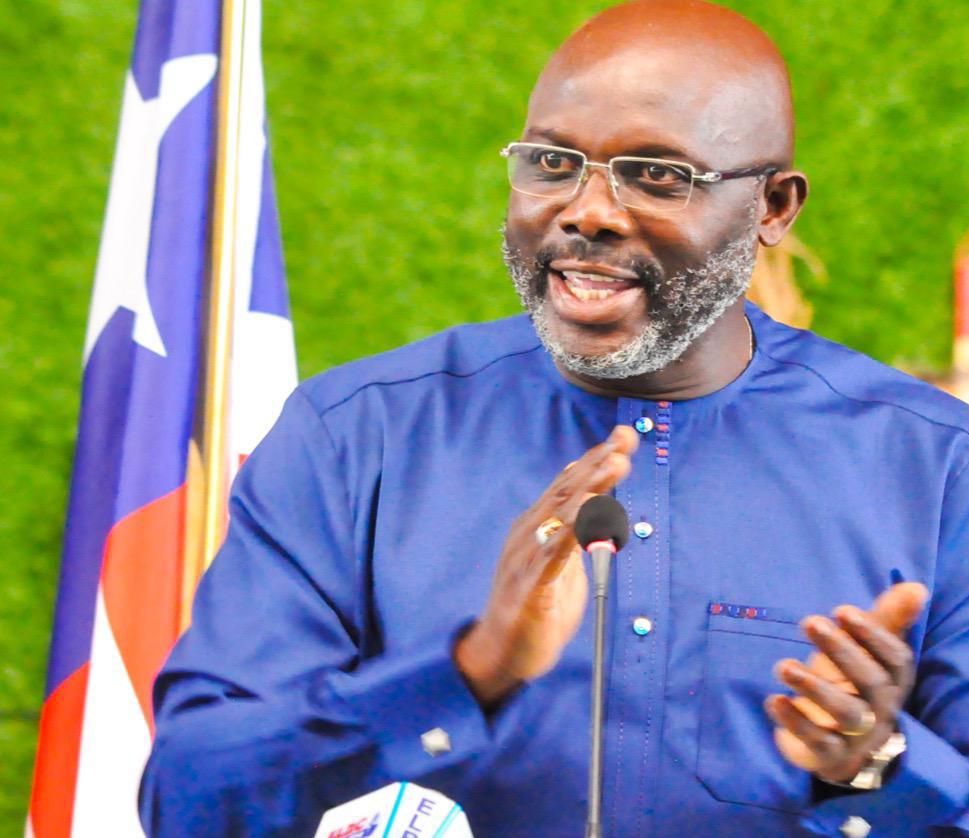 LIBERIA Kick-Off Event of the Bi-Centennial at the historical Providence Island, the place where Freed-Black
LIBERIA Kick-Off Event of the Bi-Centennial at the historical Providence Island, the place where Freed-Black
8 THE EUROPEAN TIMES • FEBRUARY 2022
Ministry of Information, Cultural Affairs and Tourism - Republic of Liberia
President George M.Weah Speaking at the historical Providence Island, during the kick-off Event
LIBERIA: A GROWING TOURISM DESTINATION
THE LAND OF RETURN
Leadership” as Bicentennial Commemoration theme.
To preserve and uphold a strong bond of relationship with the United States of America, the settlers named most of the counties and cities of Liberia after a number of American States, notably including Maryland and Mississippi in Africa, amongst others “to continue to preserve their cultural ties with the places they came from in the United States.
The slogan shows Liberia as the Lone Star nation and the first independent black republic in Africa. Despite the country’s recent bitter history of conflict, Liberia has restored peace and stability and it remains stronger together as a nation through democratic governance. The country has held three successive democratic elections, which ushered in Mrs. Ellen Johnson-Sirleaf as the first democratically elected female president of the country and Africa. In 2017, the country witnessed the democratic transfer of power from one democratically elected president to another when President Sirleaf transferred
power to President George Manneh Weah resulting from the outcome of a free, fair and transparent democratic election. This transfer of power was a significant milestone that the country has not achieved in more than 70 years.
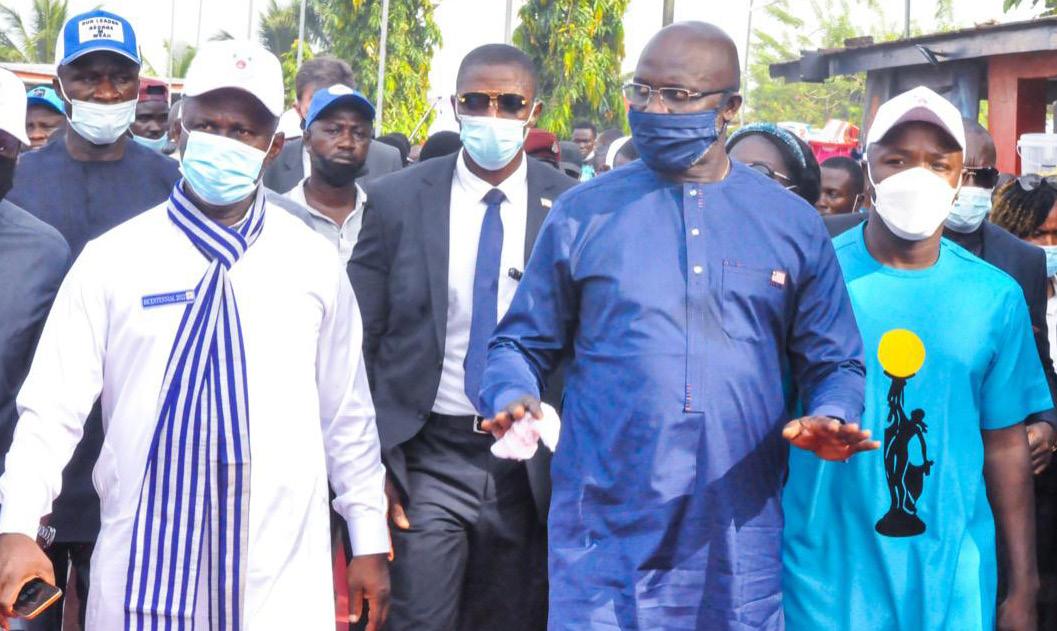

According to the Steering Committee, the theme and slogan are designed to support the objectives of the Bicentennial Commemoration, which are to celebrate Liberia’s rich cultural heritage; to showcase the country’s tourism and investment opportunities; to reunite and reconnect African Americans in the United States and other blacks within the diaspora to their cultural identity in Liberia. A key objective of the Bicentennial commemoration is to also strengthen the rich historic relationship between the United States and Liberia dating back to the 1800s when Liberia was established.
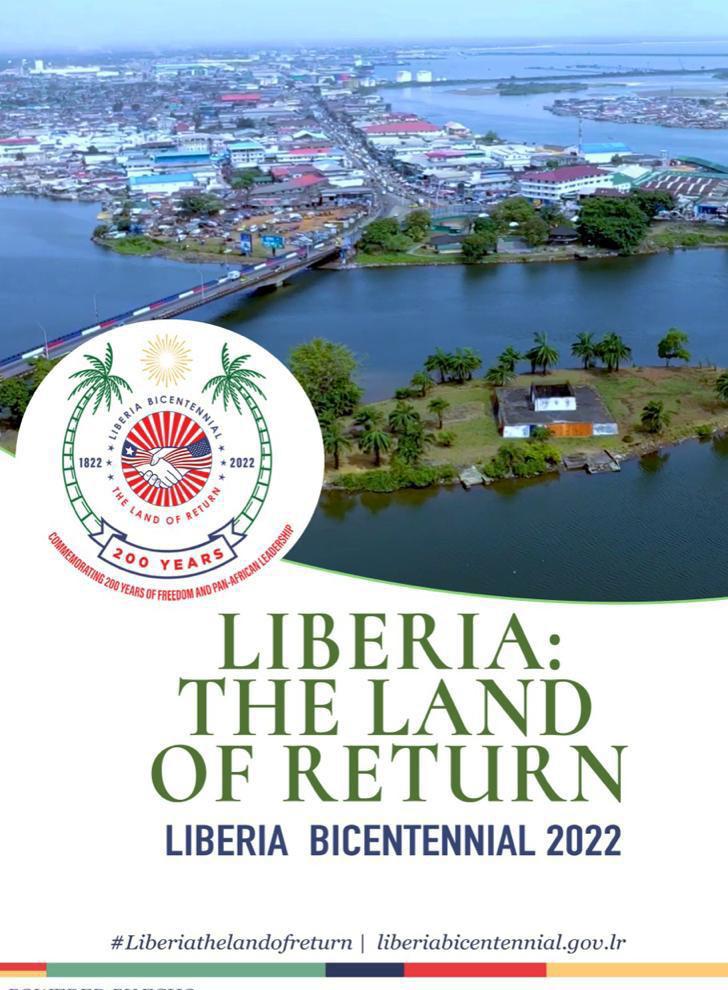


To ensure the success of the Bicentennial Commemoration, His Excellency, President Dr. George Manneh Weah of the Republic of Liberia, is calling on all Liberians, the local and international partners and the diaspora communities to participate in this historic event to celebrate 200 years of the founding of the country by free people of African descent from the United State and other parts of the world, including the Caribbean and Europe; and the level of freedom and Pan-African leadership that the country has enjoyed, while showcasing the country as an ideal destination for tourism and investment. Various subcommittees are assisting the National Steering Committee of the Bicentennial commemoration ensuring an inclusive measure to assure the success of the event. The President is calling on all Liberians and good friends of the country from around the world to work together collaboratively, irrespective of their social and political alignments, to ensure the success of this event for the overall benefit for the country. ■
 Freed-Black Slaves under the direction of the American Colonization Society landed some 200 years
Freed-Black Slaves under the direction of the American Colonization Society landed some 200 years
9EUROPEANTIMES.NEWS • FEBRUARY 2022
The theme seeks to memorialize black freedom and nationhood and the determination for selfgovernance that began 200 years ago, while reconnecting with the diasporas from America and Europe.
The Liberian Maritime Authority, which is the world’s second largest registry, renowned for excellence, safety and innovative service. WITH THE SPECIAL SUPPORT OF
I DON’T THINK, I AM THOUGHT
By Antoine Fratini
Psychoanalyst. President of the International As sociation of Lay Psycho analysis. Member of the European Interdisciplin ary Academy of Sciences. Member of the New York Academy of Sciences

Culture is addressed to intelligence... but the latter does not necessarily listen to it. However, to do without reflective thinking is a luxury that is generally paid for dearly, because it is indeed error that transforms the individual into an automaton. Seen from this angle, the Cartesian cogito « I think, therefore I am » so much criticised in modernity is still valid. Indeed, without forgetting that from a psychoanalytical point of view I can only be where my “I” does not think (in a symptom, a dream, a missed act...), from another point of view, more psychoanimist, where I do not think I am thought. Unavoidably. I am thought by this « great other Great” that is the system with its ever more invasive media that immerse me in a constant water bath of “information » similar to a collective hypnosis. The illusion of an alternative of which the political discourse is the paradigm shows it perfectly: Right or Left, pro or con, yes or no... A genuinely personal choice remains arduous. However, it is this same discourse that attracts audiences and that takes precedence in any media political forum. In short, those who believe that they are free while dispensing with reflection or only being interested in the (apparently) more concrete issues, forget that materialism is also an ideology and are certainly reduced to being a kind of neuron of the system. It only takes a blink of the eye to go from thinker to thought.
Inculture and arrogance, hello damages
But what is the connection between thoughtfulness and uneducation? If we understand the latter as synonymous ignorance, no problem, because we are all more or less (enormously) ignorant. Knowing that we are ignorant, according to the precepts of the learned ignorance of Nicolas de Cues, is to give ourselves the possibility of learning, of cultivating ourselves, of advancing. This is, paradoxically, the basis of all wisdom. What spoils things is this highly unstable and dangerous mixture of ignorance and arrogance, stupidity being the slide from ignorance to the presumption of knowledge. Open-mindedness is always what saves from a dead end and the precautionary measure that prevents this bomb of stupidity that is too often the human being from doing damage. Here is a small illustration. Let us imagine the case of a budding handyman who does not know how to use a hammer and who has been driving nails with pliers for years. Now imagine that a friend tells him about the existence of the hammer. This is, of course, a simplified situation, but in reality it is a rather common one.
There is a strong likelihood that our handyman, a victim of a certain misonoism, will resist changing tools, because even if he sometimes hits his fingers and bends nails, he considers his
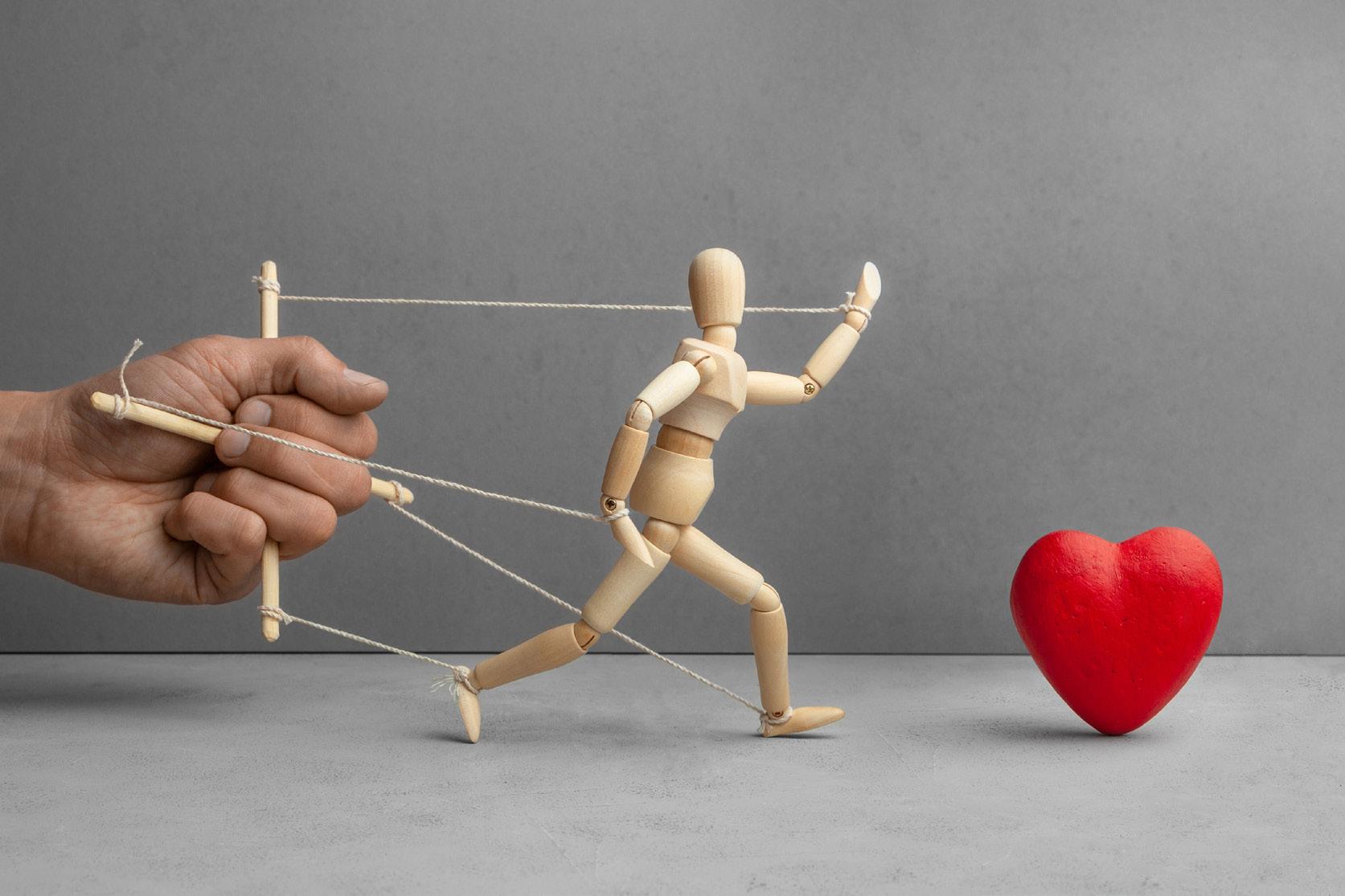
knowledge satisfactory. His motto could be:
“I know, therefore I am”!
Transposed to the intellectual level, pliers and hammers metaphorically refer to instruments of thought, to paradigms, and the more we know about these instruments, the more relevant and even convincing our interpretations of man and the world can be.For example, the psychoanalytical concepts of the unconscious, archetype, sublimation and impulse are undoubtedly a serious loss for any intellectual, psychoanalyst or not.
the art of interpretation, such as cabalists, see their intellectual capacities increase.
While contributing to intelligence, culture does not prevent stupidity
Of course, fans of meditation might object that man is generally too mental and that thinking often complicates existence more than it facilitates it. True. Thinking has an obsessive side that it is always good to reduce. The psychoanalyst, for his part, could see in what goes under the designation of “culture” the product of an “I” constantly alienated in its discourses. Also true. Intellectuals tell themselves as many stories as children, even if their discourse are more erudite and seem more serious.
But the problem is not the opposition between thinking and not thinking or between thinking and acting. It is the richness, that is, the quality of the thinking that matters. Even the most extroverted, not to say superficial, person can find in culture the material and tools necessary to sharpen his or her thinking and to form a differentiated thought, which is not a simple repetition of what he or she has heard or learned by heart. Without necessarily adhering to any system or theory.
The great philosophers, especially the French before the Revolution, were basically freethinkers rather than theorists. So we come back to the theme of this Rebel(s), for it is precisely the degree of culture (or lack of it) that, in many situations, can actually make the difference.
In other words, reflective thinking and all the possible types of intelligence (the American psychologist H. Gardner counts up to seven) are complex psychic functions, specific to everyone, but deprived of culture they are not necessarily realized.
On the contrary, enriched by a whole range of ideas, notions, concepts, theories, etc., they are able to express the personality of each individual in the best possible way and facilitate its realisation.
If there is truly authentic thought, personal to each person, “differentiated” to use a Jungian term, it is largely thanks to the possibilities represented by the wealth of reading keys belonging to our cultural heritage. Religious fanatics, for example, believe in the possibility of a single, literal, nonhermeneutic reading of the sacred texts, which in no way promotes the development of their intelligence. On the contrary, those who practice
Could we say that stupidity is inversely proportional to the degree of culture? Absolutely not. People are intelligent regardless of their level of culture, only they are limited by it. They show, as we say, an intelligence of life, a relational and social knowhow, a healthy curiosity. Which is perhaps the main thing. And let’s not forget that all the culture in the world, without a good education, doesn’t prevent the “little all-powerful tyrant” from poking his pretty head out again and again. ■
10 WHERE
Could
we say that stupidity is inversely proportional
to
the degree
of
culture?
Absolutely not. OPINION
Image under CanvaPro license
A NEWS OUTLET OPEN TO EVERY WORTHY CAUSE contact@europeantimes.news THE EUROPEAN TIMES • FEBRUARY 2022
DO YOU WANT TO BE HEARD IN THE E.U? HRWF CAN BE YOUR VOICE IN BRUSSELS AND BEYOND
What is HRWF?

Human Rights Without Frontiers (HRWF) is 33 years old. It is a non-profit association that seeks to shape European and international policy in ways that strengthen democracy, uphold the rule of law and protect human rights globally.
Since January 1989, it has been the voice of numerous voiceless individuals and groups oppressed or discriminated against in a wide range of countries on all continents
HRWF has also hailed progress made by a number of governments who have understood that protecting the human rights of their populations contributes to internal cohesion, social peace, development and political stability.
As a long-standing human rights activist, Willy Fautre, its Executive Director, inspired the creation of this NGO defending democracy, the rule of law and human rights 33 years ago when he was still teaching and has been at the forefront since its inception.
Throughout these three decades, the world has dramatically changed and HRWF has always adapted to its new environments in order to remain effective in its defense of the rights of people and peoples.
With the steady expansion of the European Union after the collapse of the Berlin Wall and communism in Europe, Brussels has become one of the main political decisionmaking centres on the continent
and in the world.
How can we be your voice?
HRWF can rely on a wide range of experts, consultants and informers around the world.
HRWF organizes or participates in missions in the field.
HRWF publishes daily thematic newsletters: Human rights in the World, Freedom of Religion or Belief, Women’s Rights and Gender Issues, LGBTQI People and Human Rights.
About 10,000 policy-makers receive HRWF news:
All the members of the European Parliament (updated after each election) per committee and delegation
All the members of the parliaments of 16 EU member states + UK (updated after each election)
EU institutions

Think tanks, media and press correspondents in Brussels
Think tanks in Europe and America
Universities and academic institutions
All the embassies in Brussels, Geneva (UN), Vienna (OSCE), Washington and New York (UN)
UN institutions
OSCE institutions
Council of Europe NGOs
HRWF organizes webinars, conferences and information events with Members of the European Parliament (MEPs) and at the Press Club in Brussels.
HRWF is a member of the Press Club in Brussels and can hereby publish articles in a number of media outlets of the EU Bubble.
HRWF regularly participates in academic seminars, conferences at the UN in Geneva, the OSCE in Warsaw and Vienna, the European Parliament in Brussels and
Strasbourg.
HRWF, along with a partner, files submissions, written and oral statements in the name of individuals, ethnic and religious groups at the UN in Geneva, Universal Periodic Review (UPR) of the Member States, Human Rights Council, Human Rights Committee and other UN mechanisms.
This is how HRWF could make your voice heard in Brussels and beyond.
Human Rights Without Frontiers
FoRB & Blasphemy Prisoners Database
2022
What is it? Human Rights Without Frontiers has launched an online database of freedom of religion or belief and blasphemy prisoners. The data base contains information on over 4,000 prisoners worldwide. Over the past years, personal and legal information has been collected about each prisoner through open source investigation, as well as through communication with religious communities. While the list of prisoners is not comprehensive, it is re�ularly updated as new information becomes available. Who is included? The database includes believers of all faiths and atheists who have been imprisoned for activities relating to: > Freedom to have, keep, or change their religious beliefs > Freedom of expression on religious issues > Freedom of (religious) association > Freedom of (religious) assembly and worship > Conscientious objection to military service The database does not include people who are believers or atheists who have been arrested for non religious activities. An overview of 2022 Asof January 2022 3,600 total number of priso ners 20 di fferent religious or belief aff iliations ap pear in the prisoners database 0 countries How can it be used? It is the hope of Human Rights Without Frontiers that the new database format wil serve as a useful tool for policy makers, academics, and civil society organisations to identify trends n religious persecution as well as individuals who are in need of help. Users can sort information based on fifteen search critera, including: Rei igious aff ii iation Country nlliation Protestants Gender Buddhists Length of prison sentence rajkistan Baha'is Name of prison Egypt Muslims/ Said Nursi Charges 'Jzbekistan Catholics Legal codes 'khstan Jehovah's Date of arrest Witnesses mad Countries with highest number of FoRB & Blasphemy prisoners China Eritrea Russia Iran Uzbekistan Pakistan lotarrests 59 To access the database, visi t our website: www.hrwf.eu AYI ABI ABI ABI NA! ABI ABI AA' 63 27 6 5 114 16 11EUROPEANTIMES.NEWS • FEBRUARY 2022
OPINION USA RUSSIA: HOW TO BREAK THE DEADLOCK?


may be, deprives it of a strategic role in the world.
Yet it is in this credibility and independence that the solution lies to represent a real added value at the negotiation tables, which aim to define and manage the challenges of our world.
Russia is not a remake of the USSR, nostalgia does not make history, the one that has yet to be written.
Russia does not seek, like the USSR, to export and to constrain, but to be a full part of a world in search of new balances, where no one should impose himself.
THE ANALYSIS
offensive export and imposition of a Marxist socio-cultural, economic and political model, which has in fact totally disappeared in the Russia of the XXI century. We have changed century, but unfortunately not our way of thinking about the world.
By Emmanuel Goût Member of Geopragma’s Strategic Orientation Committee
Last December, at the time of a serious resurgence of tensions between Russia and the United States, the founder of the French think tank Geopragma, Caroline Galactéros, published an appeal at the European level which indicated the possible conditions for a lasting pacification of relations between the USA, NATO and Russia. Since then, tensions between the parties have continued to rise, mainly around Ukrainian issues, but also in the Middle East.
A few days later, the major part of the conditions outlined in this appeal were on the negotiation tables, in Geneva and Brussels.
The first results of these talks were negative, both bilaterally in the USA and in NATO and the OSCE. Europe, for its part, kept out of the negotiations, could only make do with additional posturing, which found its quintessence in the joint Borrell - Le Drian press conference, a sad echo of all that had been said previously by the direct participants in the negotiations.
Once again, Europe, now presided over by Emmanuel Macron, is being treated as a mere vassal, and it seems to be resolutely indulging in this treatment, a victim of its structural strategic inadequacies. Emmanuel Macron, who was recently challenged by the United States in the Australian submarine affair (a contract worth tens of billions was cancelled), is therefore faced with the challenge of organizing a geopolitical Europe.
Europe has only what it deserves: its lack of credibility and independence with regard to the “empires”, whatever they
Let us briefly review the background to these issues. As a thoughtful provocation, would Putin be the Kennedy of the 21st century, capable of saying no to an advance, to the presence on his borders of troops considered to be enemies, as was the case in the Cuban crisis at the height of the Cold War? The answer is no, both because the rapprochement between the two personalities would shock many, and because we forget what the American president and Nikita Khrushchev embodied at the time: the antagonism, the permanent confrontation of two visions of the world, two visions that both the USA and the USSR wanted to export and impose, within perimeters defined and circumscribed by political, military, industrial, social, cultural and religious walls...
However, the USSR has been dead for 30 years now, despite the fact that some Russians and the West found it a very “comfortable” enemy.
This is why the failure of this first round of negotiations is not surprising. There is, within ourselves, a real cultural and mental revolution to be undertaken, to abandon what is still similar to Hollywood and Manichean constructions inspired by Yan Flemming, John Le Carré, or Gérard de Villiers; intellectual scaffolding aiming to legitimize a fictitious reality, that of a world that must play ad vitam aeternam the prolongations of a supposedly founded confrontation. A dangerous game for the security of Europe and beyond, for that of the world.
It is often said that NATO’s vocation was to counter the Warsaw Pact, and that the disappearance of the latter should have led to the disappearance of the Alliance, or at least, logically, to a redefinition of its ambitions and its logic. This was not the case. On the contrary. NATO’s mental and operational algorithms have remained based and calculated on models that project Russia as having the worst intentions, which were those of the USSR: internationalist ambitions of
However, today’s Russia resembles us more than ever. Seen from China or Central Asia, it is a resolutely European power. Personally, I even think that it tries too hard to copy us, because its identities, its specificities, its economy, its social life, its traditions, its cultures and its reflexes should be analyzed in a logic of praise of differences rather than inspire a logic of confrontation. This analytical pavlovism is anachronistic and regrettable. It prevents us from being able to think about reality and its possibilities.
Let us not transform regional questions into global issues. These are not, these are no longer two visions of the world that are confronting each other. It is not Nazism against the free world, it is not Marxism against the free world. World peace can no longer be held hostage by regional interests. The 21st century must push us to admit the existence of a polycentric world that must be stabilized, a world in which globalization does not rhyme with uniformity but where it maintains the richness of differences in the service of new geopolitical harmonies. ■
12
THE EUROPEAN TIMES • FEBRUARY 2022
Reviews
“Remarkable… Narrated with great skill and pas sion… For those who wish to understand the unique European attempt to end warfare forever, this brilliantly powerful book cannot be ignored.”
Anthony Pagden, Literary Review
“Focuses on the successive attempts to exor cise war in Europe from the 18th century to the present, a theme it develops with unfailing grace, verve, and lucidity… What is in many ways the most original retrospect of the continent since 1714 that we possess.”
Perry Anderson, London Review of Books
“At once an intellectual, political, and philosophi cal history, her erudite and unusually lucid book should appeal to policymakers, scholars and ordi nary citizens alike. She examines five epoch-mak ing episodes from the past 300 years in which different conceptions of peace proliferated, co alesced, crystallized and then were implemented, often imperfectly… Perhaps the first pan-Euro pean history of peace, inclusively encompassing territories and peoples from the Atlantic to the Black and Baltic seas.”
Gabriel Paquette, Times Higher Education
“Peace is not a natural state of affairs. As Gher vas shows in her elegant and stimulating book, it needs to be ‘engineered,’ and before that it has to be imagined. The past she brilliantly conjures is another country, to be sure, but the lessons it bears for our own troubled times are compel lingly elaborated through an examination of the five major conflicts that have shaped modern Europe. Peace, she rightly concludes, is for the strong, while only the weak resort to war.”
Brendan Simms, Europe: The Struggle for Supremacy, from 1453 to the Present
“By shedding new light on key historical episodes, political figures, and philosophical ideas, Gher vas tells the fascinating story of the engineering of peace in Europe. A lively, inspiring, and useful read for all those who are committed to a lasting peace in Europe—and beyond.”
—Michel Barnier, EU Head of Task Force for Relations with the United Kingdom
CONQUERING PEACE: FROM ENLIGHTENMENT TO THE EUROPEAN UNION HARVARD UNIVERSITY PRESS - STELLA GHERVAS

A bold new look at war and diplomacy in Europe that traces the idea of a unified continent in at tempts since the eighteenth century to engi neer lasting peace.
Political peace in Europe has historically been elusive and ephemeral. Stella Ghervas shows that since the eigh teenth century, European thinkers and leaders in pur suit of lasting peace fostered the idea of European unifi cation. Bridging intellectual and political history, Ghervas draws on the work of philos ophers from Abbé de SaintPierre, who wrote an early eighteenth-century plan for perpetual peace, to Rousseau and Kant, as well as states
men such as Tsar Alexander I, Woodrow Wilson, Winston Churchill, Robert Schuman, and Mikhail Gorbachev. She locates five major conflicts since 1700 that spurred such visionaries to promote sys tems of peace in Europe: the War of the Spanish Succes sion, the Napoleonic Wars, World War I, World War II, and the Cold War. Each mo ment generated a “spirit” of peace among monarchs, dip lomats, democratic leaders, and ordinary citizens. The en gineers of peace progressive ly constructed mechanisms and institutions designed to prevent future wars.
Arguing for continuities from the ideals of the Enlight enment, through the nine
THE AUTHOR
Stella Ghervas is a Swiss author, historian and essayist with roots in Eastern Europe.
She has lectured on four con tinents and is currently Full Professor and Chair of Russian History at Newcastle Univers tiy (UK). She is Associate of the Department of History at Har vard University and Fellow of the Royal Historical Society.
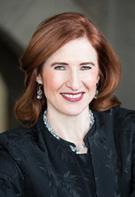
Her main interests are in the intellectual and international history of modern Europe, with special reference to the histo
“Once considered just a utopian idea, lasting peace has been a serious aspiration, as Gher vas documents in this elegant book. Her learned and artful account follows the major European international settlements from the early eigh teenth century to the European Union, as well as the contemporary thinkers who articulated their premises. An original defense of the role of diplo macy.”
—Charles S. Maier,
Once Within Borders: Territories of Power, Wealth, and Belonging since 1500
“How has Europe achieved peace without becom ing an empire? With amazing elegance of style and argument, Ghervas answers the question in an impressive work of intellectual, political, and diplomatic history.”
—Ivan Krastev, After Europe
teenth-century Concert of Nations, to the institutions of the European Union and beyond, Conquering Peace illustrates how peace as a value shaped the idea of a unified Europe long before the EU came into being. To day the EU is widely criticized as an obstacle to sovereignty and for its democratic defi cit. Seen in the long-range perspective of the history of peacemaking, however, this European society of states emerges as something else entirely: a step in the quest for a less violent world. ■
Harvard University Press, ISBN 9780674975262
Find it at: ghervas.net
ry of peace and peace-making, and in Russia’s intellectual and maritime history.
Her book “Réinventer la Tra dition: Alexandre Stourdza et l’Europe de la Sainte–Alliance” won the Guizot Prize of the Académie Française. She was educated originally at the Uni versity of St Petersburg and she later earned two PhDs, in History (at the University of Bucharest) and in European Studies (at the University of Geneva). ■
“An ambitious, erudite, and engaging book on the search for an enduring peace in Europe. In this bracing narrative, Ghervas traces presiding ‘spirits’ which structure the politics of various ep ochs, a conceit which helps readers get inside the heads of policymakers and their critics in order to consider the possibilities and constraints in inter national politics from their point of view.”
—Christopher Brooke, Philosophic Pride: Stoicism and Political Thought from Lipsius to Rousseau
13
EUROPE
EUROPEANTIMES.NEWS • FEBRUARY 2022
IS CONFESSION PROTECTED BY FUNDAMENTAL RIGHTS?
On December 15, 2021, the leading academic publishing house of Connor Court, located in Australia, published through Shepherd Street Press a comprehensive book entitled Religious Confession and Evidential Privilege in the 21st Century.
The book includes 10 chapters, all anonymously peer reviewed by judges, religious scholars and lawyers, discussing the history, existence, scope and application in several countries of what is colloquially called the “priest-penitent privilege”—although as the chapters make abundantly clear, the privilege is not limited to its historical roots in the Catholic Church. For millennia, the privilege, in various forms, has played an essential role in enabling religions to provide salvation, understanding and even forgiveness to those who may have erred, sinned or even committed criminal acts, but who nevertheless are part of a humanity which yearns to be good and just.
By ensuring the confidentiality of such communications, the privilege encourages men and women to confront their mistakes and with the guidance of clergy seek to mend their behavior. It is difficult to imagine a religion that fails to provide such guidance and moral assistance to its followers.
The book was inspired and edited by a leading religious scholar in Australia, A. Keith Thompson, Associate Dean of the Sydney School of Law at the University of Notre Dame Australia, and by Mark Hill, Queens Counsel in London and Professor of Law at Cardiff University in Pretoria.
It contains a foreword by the former Archbishop of Canterbury, Rowan Williams, and a thorough introduction by Dean Thompson.
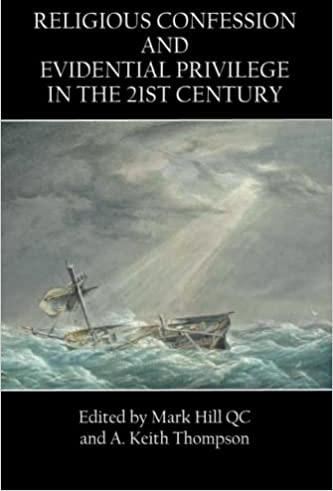
It is now the leading comparative study of a subject of great importance to religious leaders and people of faith. a deeper understanding of this tangled and urgent issue. ■
Find it at: https://bit.ly/3ui5FHy
GLOBAL INTERFAITH UNIVERSITY IS LAUNCH ON INTERFAITH HARMONY WEEK
By Petar Gramatikov
As a member of the Governing Council of the Global Interfaith University, I am delighted to announce that this newly-founded academic institution has been symbolically launched just days before the start of the 2022 World Interfaith Harmony Week (1-6 February). Prayers from the United Nations will feature the 2014 World Peace Flag Ceremony held at the United Nations General Assembly Hall to commemorate World Interfaith Harmony Week.
Global Interfaith University (GIU) is a non-profit, accredited online distance learning university, driven by a compelling vision of providing high-quality liberal arts education to individuals and communities around the world, who may find it difficult to afford the cost of traditional campus-based university education. We ensure that our students develop the skills and intellectual competencies that are essential for success, leadership and development.
Our mission at Global Interfaith University is to offer award-winning educational programs that actively shape the relations between people
from different religions, faiths and spiritual backgrounds and traditions worldwide. We provide flexible learning options for all types of passionate learners.
Our award-winning online and distance learning programs include real-time instructions and hands-on resources to ensure each student is being challenged and supported throughout their courses. Global Interfaith University (GIU) is an incorporated entity registered with the State Government of Delaware (DE), United States of America (USA).
The Governing Council exercises general oversight over the University and its affairs, bringing in a wide range of expertise and knowledge, independence and objectivity.
Global Interfaith University has Fifteen Governing Council members who meet four times each year.
Our Vision is to develop confident, responsible and well-mannered students who aspire to achieve their full potential. We do this by providing a diverse, secure, fun and supportive learning environment in which everyone is equal, and all achievements are celebrated.
The Global Interfaith University (GIU) is a non-profit, accredited
online distance learning university. It is driven by a compelling vision of providing high-quality liberal arts education to individuals and communities worldwide, who may find it challenging to afford the cost of traditional campus-based university education. Our core values include honesty, diversity, innovation, compassion, reliability, optimism, respect, perseverance and commitment.
What we do at GIU
At Global Interfaith University (GIU), we offer a broad range of distance and online learning programs. Each of our programs is designed to take the learners to the next level of their careers and life experiences. Our Degrees and Professional Development Programs are carefully designed by experts to help learners develop rewarding and fulfilling careers and dreams.
GIU Philosophy
At Global Interfaith University, we acknowledge that Religion, Faith, Spirituality and Science are not enemies but symbiotic disciplines. Therefore, our faculty works with our students to explore how this inter-sectionality and symbiosis from the deposits of wisdom in
religion, faith, spirituality and science can collectively contribute to human development.
GIU Academic Programs
Global Interfaith University (GIU) offers interesting choices for both undergraduate and postgraduate programs. Our University faculty offers students excellent learning services and support to enable them to succeed in their learning, research and practice beyond the University. Our academic programs provide students with insights into the world’s religions, such as Judaism, Christianity, Islam, Buddhism, Hinduism, Shintoism and several others that have influenced human behaviour, including the world’s history, literature, politics and environment.
Our students have unrestricted access to our study materials and also learn through lectures, observations and videos. Global Interfaith University offers several accredited academic programs at Certificate, Bachelors Degree, Masters Degree and Doctoral Levels.
For more information:
14
FAITH
■
www.giuniversity.net
A NEW SCHOLARLY BOOK, PUBLISHED BY CONNOR COURT PUBLISHING, COVERS THE DEBATE IN DEPTH
THE EUROPEAN TIMES • FEBRUARY 2022
Russian Soprano Svetlana Kasyan offers Album for Pope Francis’ Birthday,entitled “Fratelli Tutti”. Kasyan is one of the most rising figures in the world of opera today.
But she is also a close friend of Pope Francis, who blessed her voice and awarded her the star of the lyric of the Grand Cross of the Pontifical Or der of Saint Sylvester for her 35th birthday. She is the first and only lady awarded with this honor. So it’s a fair return that she dedicates her new album Fratelli Tutti to the pontiff, and released it the day of his 85th birthday, last December 17th.
Fratelli Tutti is made of 14 folk songs in 14 different languages and is available online at svetlanakasyan. hearnow.com
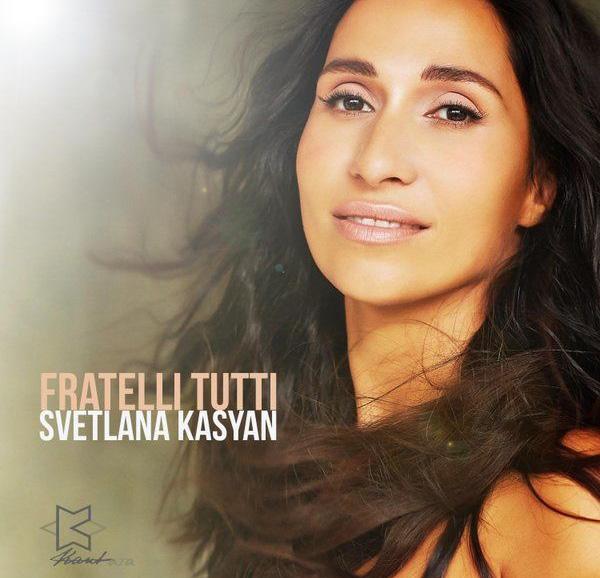
Your album is called Fratelli Tutti and you dedicated it to Pope Fran cis, what’s the story behind it?
Svetlana Kasyan: This album is the story of my life. I was born in Georgia, then during the war we moved to Kazakhstan, I studied in Moscow, won a competition in China
CULTURE SVETLANA KASYAN [FRATELLI TUTTI]: THE MAIN MISSION OF MUSIC IS TO UNITE THE WHOLE WORLD
and China opened an international career for me, 12 years of contracts in Italy, and so on…So that is what is behind the choice of having songs from many countries, in many lan guages. Then, my close relationship with Pope Francis has always been a blessing, and he has always been very kind to me.
This album is the story of my life.
I was born in Georgia, then during the war we moved to Kazakhstan, I studied in Moscow, won a competi tion in China and China opened an international career for me, 12 years of contracts in Italy, and so on…
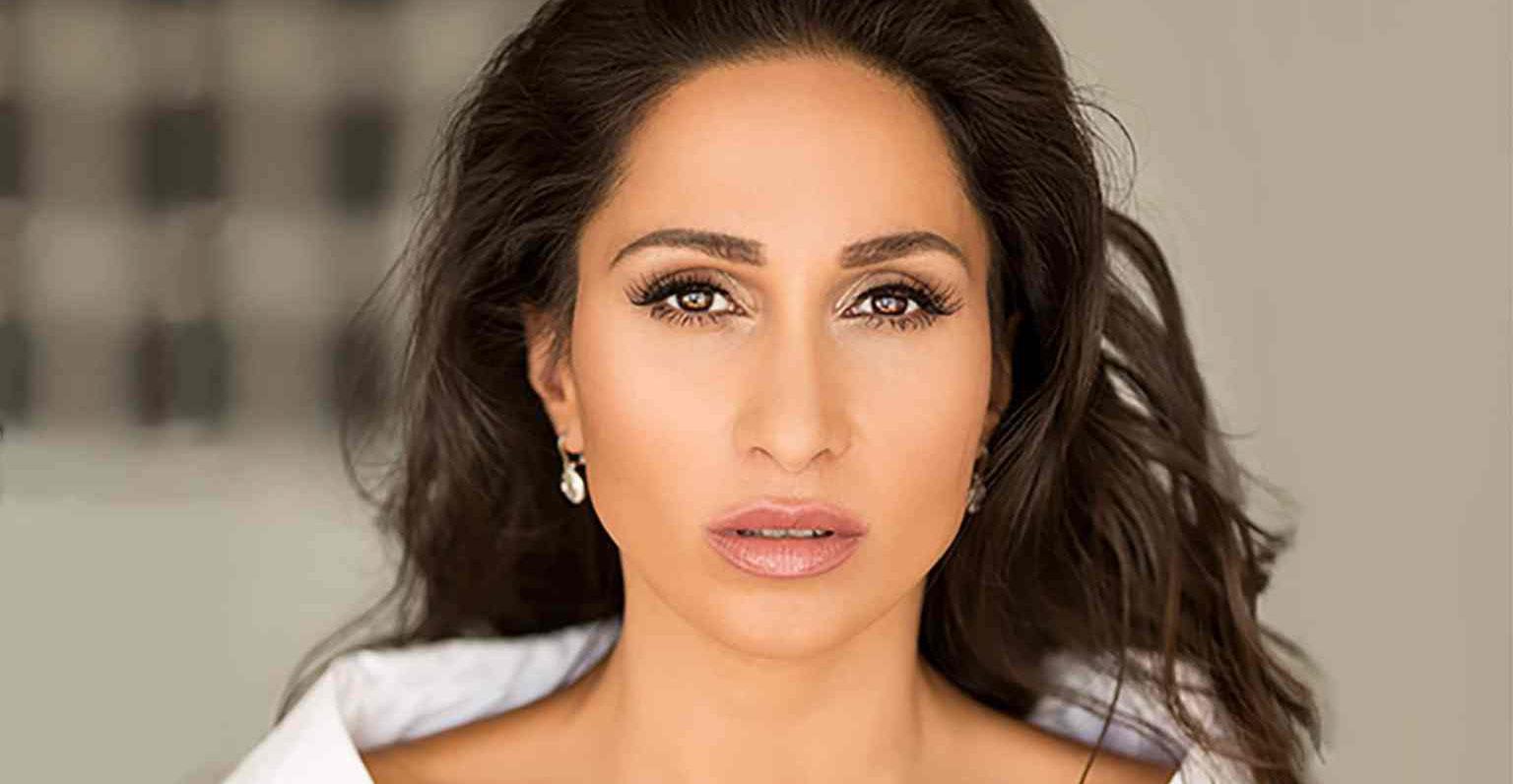
So that is what is behind the choice of having songs from many coun tries, in many languages. Then, my close relationship with Pope Francis has always been a blessing, and he has always been very kind to me.
What do you think an artist is re
Tensions beTween sisTer orThodox churches
PaTriarchaTe of alexandria and The Moscow PaTriarchaTe
The main thing: 102 clerics of the Patriarchate of Alexandria from eight African countries were accepted into the jurisdiction of the Russian Orthodox Church.
Details: The Holy Synod of the Russian Orthodox Church decided to accept the clergy following the petitions submitted earlier, patriarchia.ru reports.
The Synod also formed the Patriarchal Exarchate of Africa as part of the North African and South African dioceses, the head of the Patriarchal Exarchate of Africa to have the title of “Klin”.
Appointed Archbishop Leonid of Yerevan and Armenia as Metropolitan of Klin, Patriarchal Exarch of Africa with the assignment of governing
sponsible for in our world? Does creating peace is amongst the re sponsibilities of a singer like you?
SK: Yes, for me, the main mission of music is to unite the whole world. With my creativity, I want to speak and create that there be no war, al though it is very difficult. But music has tremendous power.
You live in Russia, and became a real diva there and in Italy. Are you not afraid that dedicating an album to the head of the Catho lic Church, while being a Chris tian Orthodox, can trigger some strong reactions in your country?
SK: Well, I posted some excerpts from the album on social networks and already faced negative com ments. I am very sad about it! Peo ple wrote that because of the wars I should not include so many different songs in one album. But I will con
the North African diocese and temporary administration of the South African diocese.
The pastoral responsibilities of the Diocese of North Africa include the Central African Republic, the Republic of South Sudan, the Republic of Cameroon, the Federal Democratic Republic of Ethiopia, the Federal Republic of Somalia, the Republic of Seychelles and all other African states to the north of them. It also included stauropegial parishes of the Moscow Patriarchate in the Arab Republic of Egypt, the Republic of Tunisia and the Kingdom of Morocco.
The pastoral responsibilities of the Diocese of South Africa include the Democratic Republic of Sao Tome and Principe, the Democratic Republic of the Congo, the Republic of the Congo, the Republic of Gabon, the Republic of Equatorial Guinea, the Republic of Kenya, the Republic of Uganda, the Republic of Madagascar and all other African states to the south of them.
In addition, the stauropegial parish of the Moscow
tinue to do this, and I believe that in the hearts of many people it will help settling the world!
Are you planning to travel around the world to promote your album? Where will we be able to see you in the times to come?
SK: Yes, I would like to sing this beau tiful repertoire all around the world. In addition, I have more songs with different languages in my repertoire than in my album. So it would be a very interesting program. But noth ing is planned for the moment as re gards playing these songs on stage. Any further plans for the future?
SK: I have a lot of interesting con tracts in Italy, Germany and Russia with beautiful music and a new rep ertoire. So at least, you’ll see me in these countries. But 2022 is not yet started, so there could be many sur prises. ■
Patriarchate in the Republic of South Africa also became part of the South African Diocese.
Priests who moved from Alexandria to the Russian Orthodox Church were asked to leave the churches and housing, said the Patriarchal Exarch of Africa, Metropolitan Leonid of Klin.
Some families remained on the street and had to be sheltered by relatives and parishioners.
“The clergy unquestioningly accepted the order to vacate the places of service and residence and left,” RIA Novosti quotes the words of Metropolitan Leonid.
However, he drew attention to the fact that the eviction of the families of priests took place in different ways. Now such priests are helped by their parishioners and the Russian Orthodox Church. “We are now collecting information on how many people found themselves without housing,” Metropolitan Leonid specified.
15EUROPEANTIMES.NEWS • FEBRUARY 2022
“FRATELLI TUTTI” WAS RELEASED AT POPE FRANCIS’ BIRTHDAY
Find it at: https://bit.ly/3saivoH
Full version here https://bit.ly/3ofNoqs
With a monthly show in the heart of the European capital, they bring you the news you didn’t know you missed in a way you won’t forget.
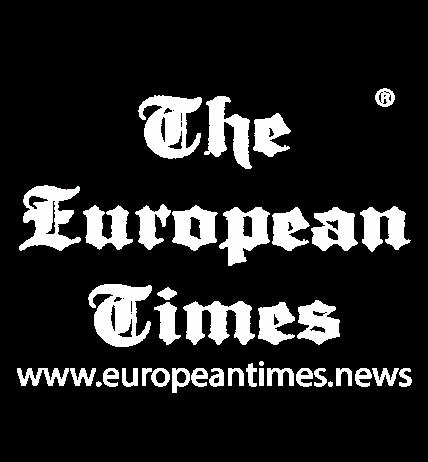
They satirize the decision makers and disrupt the narratives with absurd theatrical sketches, witty monologues and catchy songs.

And for those who can’t get enough, they also spread some serious laughter through their social media channels, to keep you hooked onto EU business like you never knew you would.
So follow them on Facebook, Twitter, Youtube and Instagram.


What is Changing the framework (Cambia el marco)?

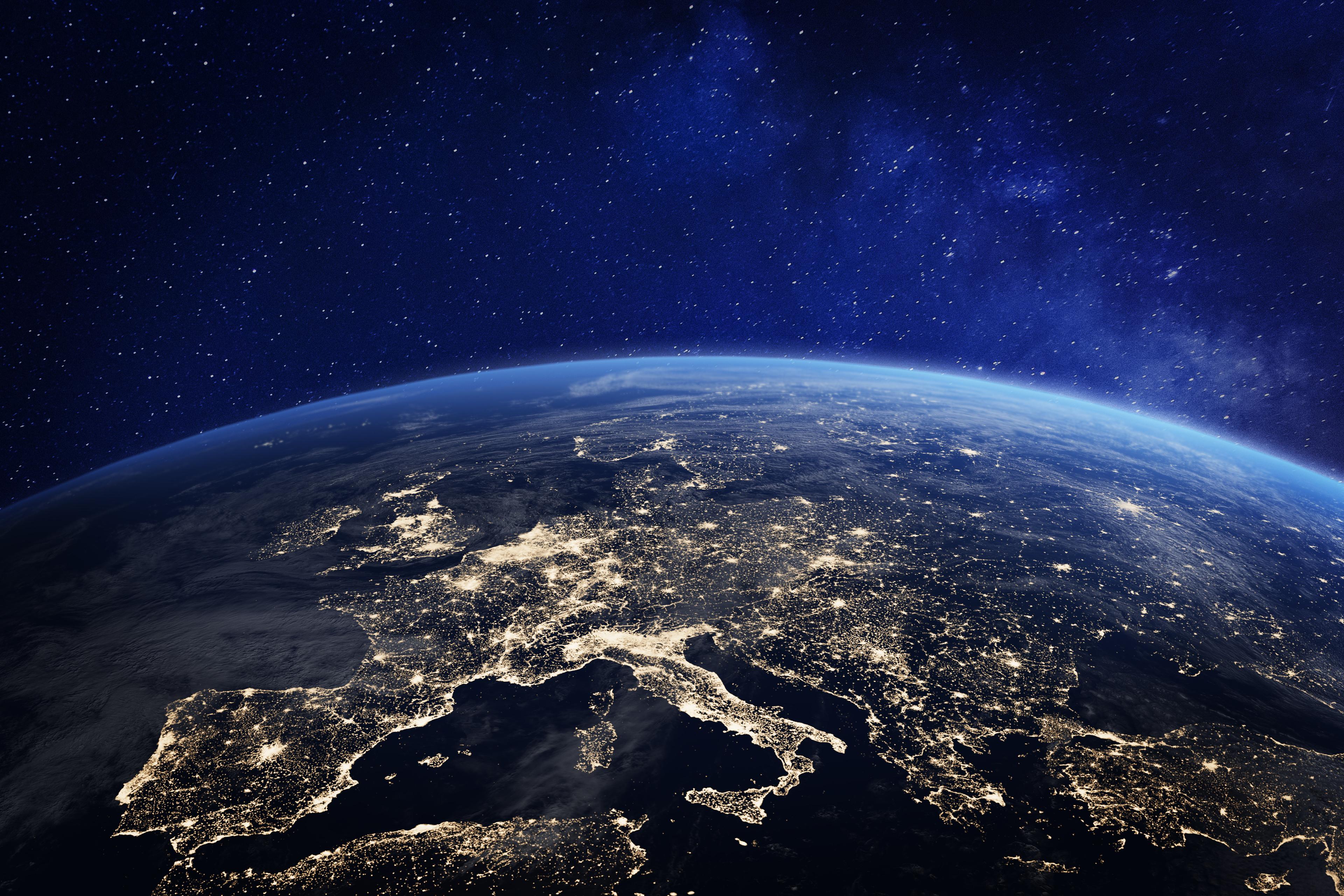
Changing the framework. New perspectives for an intercultural society was a project that took place between October 2018 and November 2019 that sought to use creative audiovisual practice to show religious plurality from the individual experience of youth and which in 2022 is being used in schools around Spain to promote knowledge and respect.
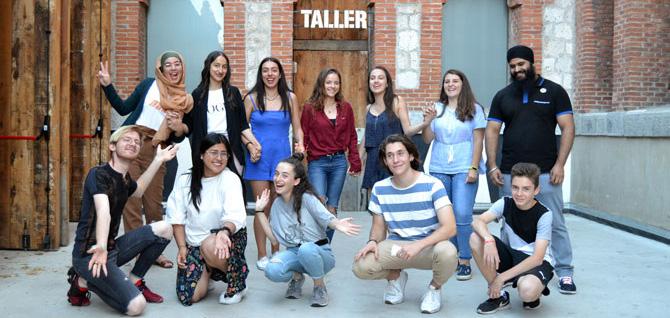
Why Changing the framework?
Because they want to introduce new frameworks – new languages, new approaches and new experiences – to confront totalizing views on beliefs and to contribute to a greater understanding and appreciation of religious freedom within the scope of human rights.
Who are they?
The project Changing the framework. New perspectives for an intercul tural society was sponsored by the Fundación «la Caixa» in the call for proposals «Interculturality and social action 2018» and implemented by the Fundación Pluralismo y Convivencia in partnership with the Fundación Jóvenes y Desarrollo and the collaboration of the filmmaker Jonás True ba. Changing the framework also had the support of Cineteca (Matadero Madrid) for the carrying out of the work sessions.
16
STAY TUNED FOR THEIR NEXT SHOW IN BRUSSELS www.schumanshow.com europeantimesnews europeantimes_ europeantimesnews
CHANGE THE FRAMEWORK DOCUMENTARY






















 LIBERIA Kick-Off Event of the Bi-Centennial at the historical Providence Island, the place where Freed-Black
LIBERIA Kick-Off Event of the Bi-Centennial at the historical Providence Island, the place where Freed-Black





 Freed-Black Slaves under the direction of the American Colonization Society landed some 200 years
Freed-Black Slaves under the direction of the American Colonization Society landed some 200 years

















